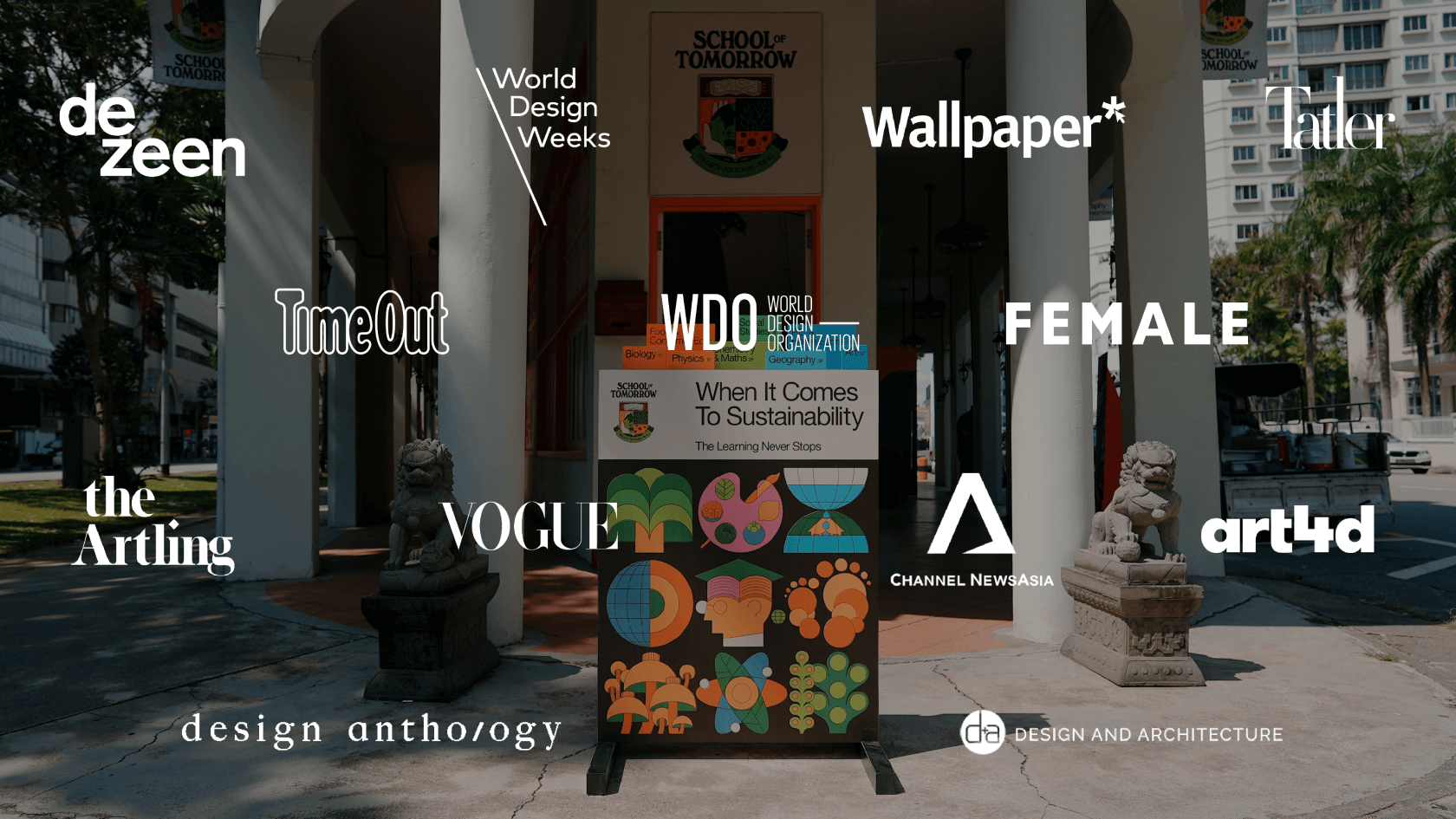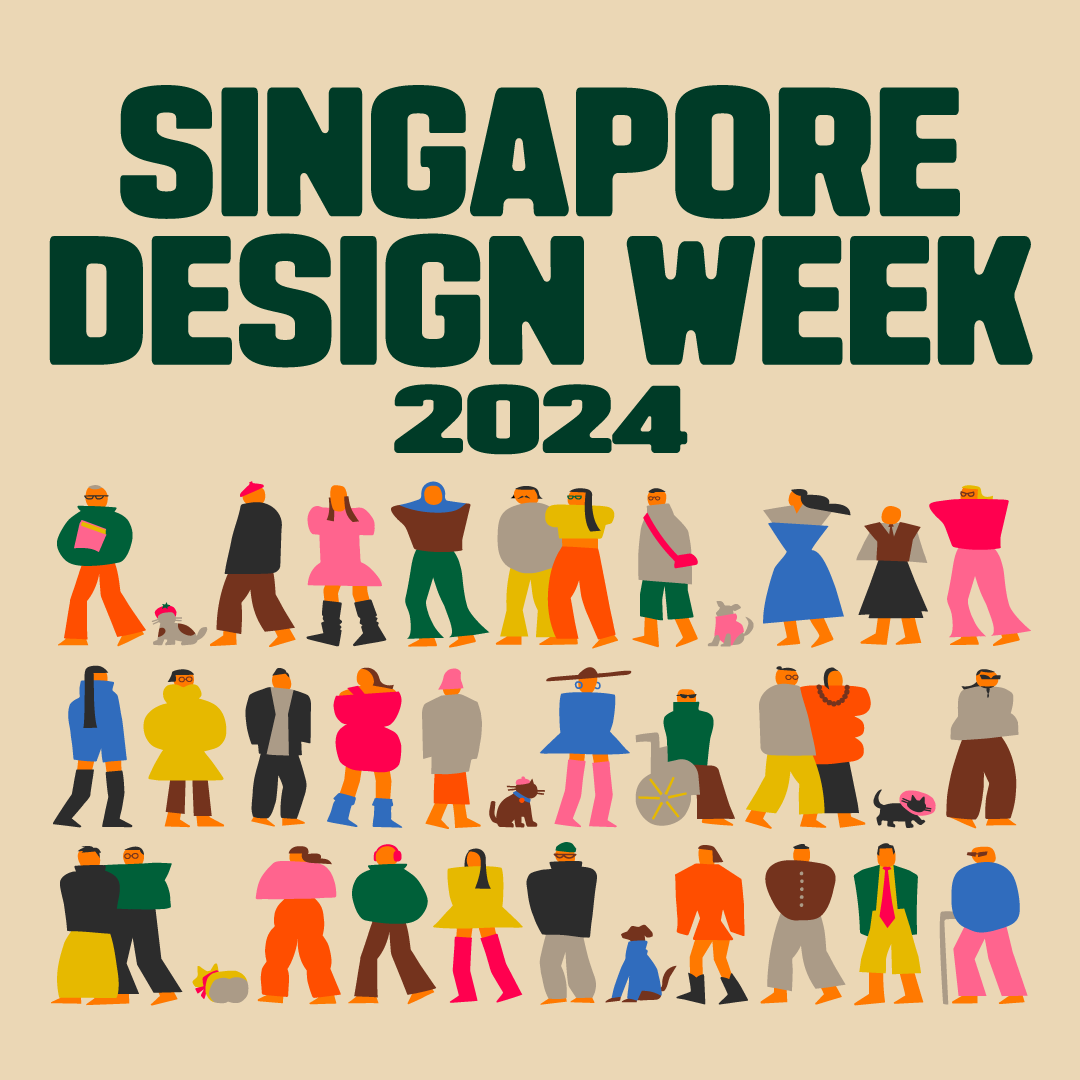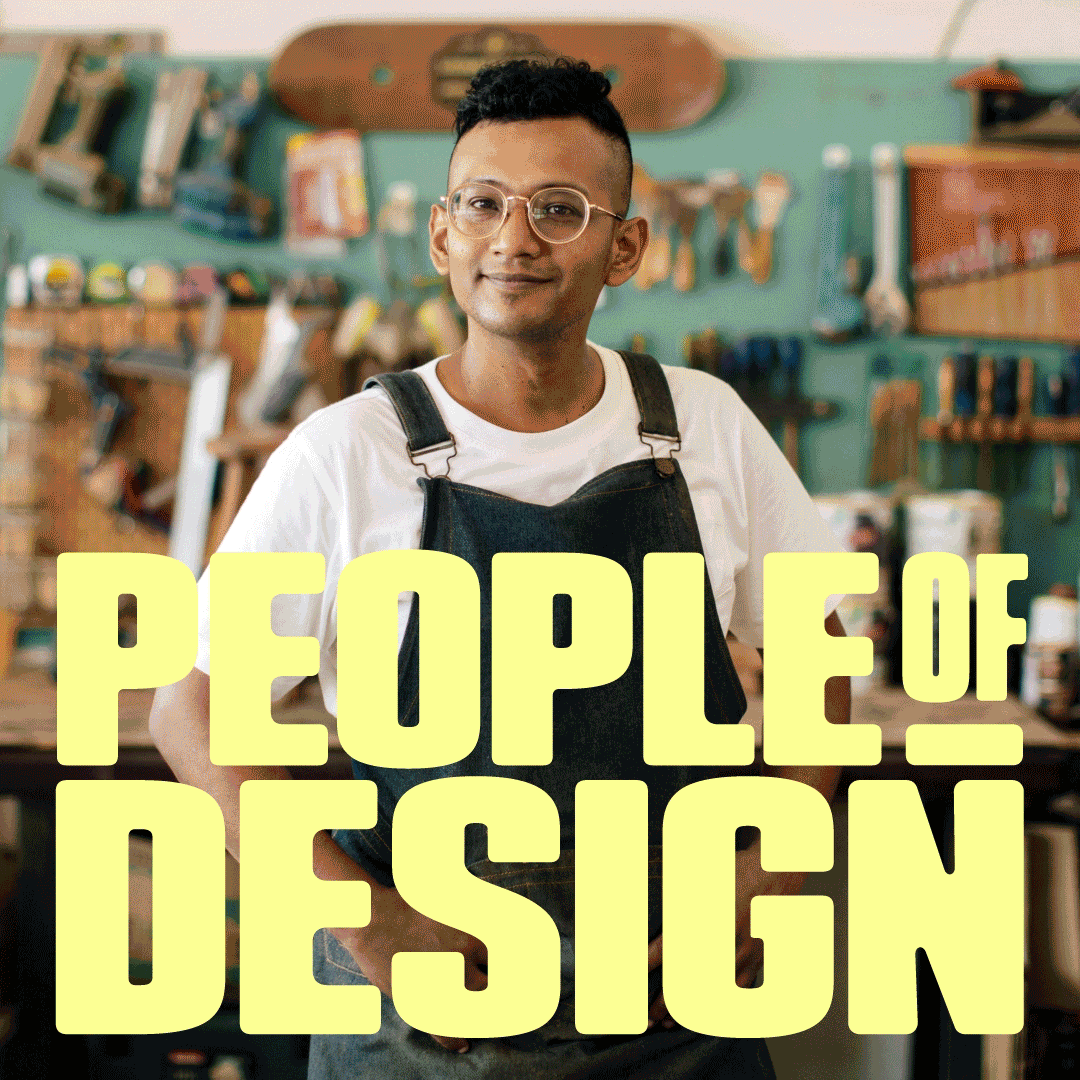From our A, B, Cs and 1, 2, 3s to so much more, we learn everything in school.
So why shouldn’t it prepare us for our greatest test — the threats and challenges of a changing planet. Open to ‘students’ of all ages, School of Tomorrow is a sustainability exhibition commissioned for Singapore Design Week 2023. Ten familiar school subjects spanning the sciences to the humanities are given a sustainability twist, offering lessons on critical environmental issues like waste, pollution, food, energy, climate change and more.
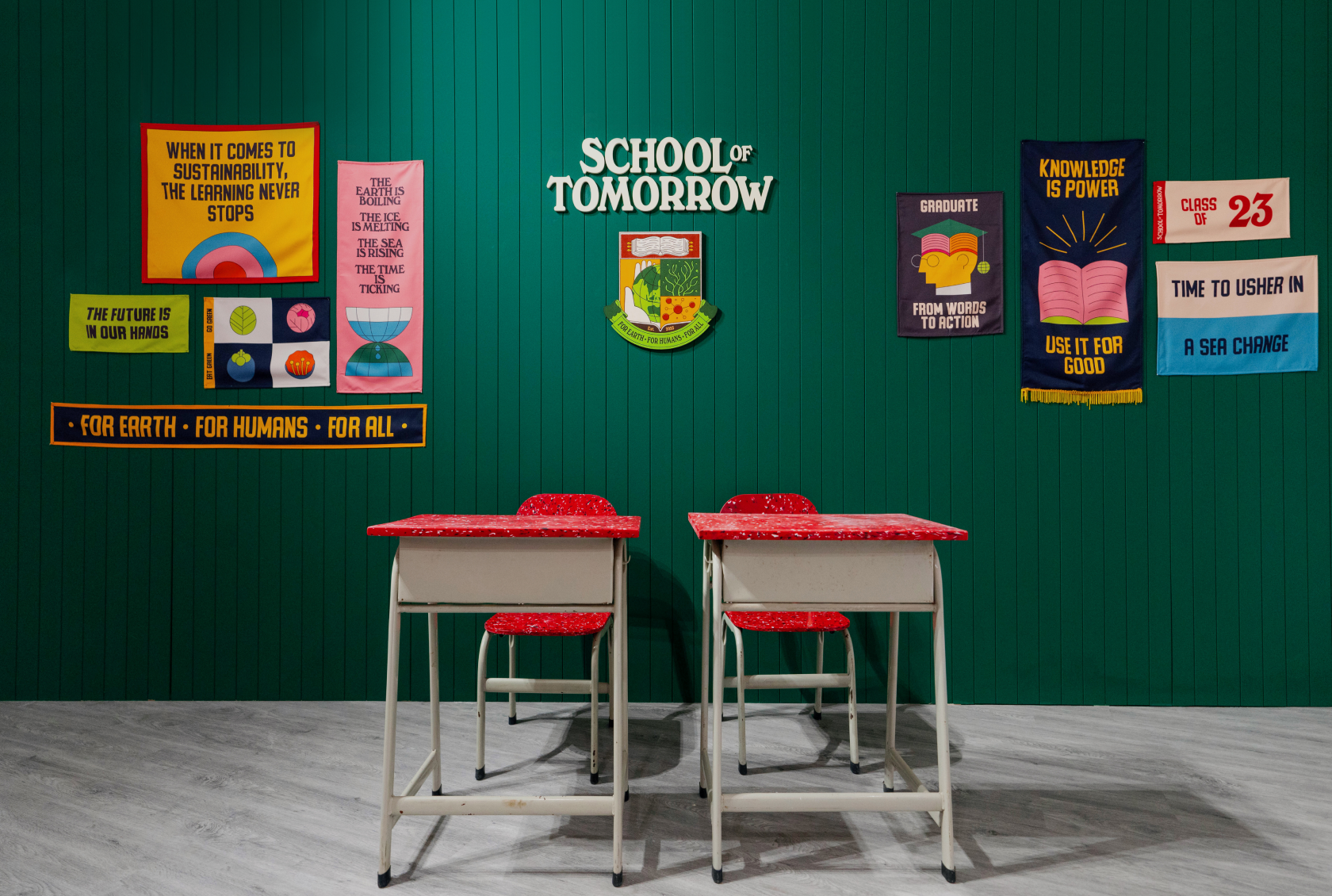
When It Comes To Sustainability,
The Learning Never Stops
Visitors are treated to an immersive school-going experience every step of the way: from the decked-out facade, to the ushers in school uniform, to the welcome wall and inspiration corner, to the canteen and even a sick bay. In each class, students learn about a particular environmental issue as well as the solutions being explored.
“Playful approach to
environmental education”Wallpaper*
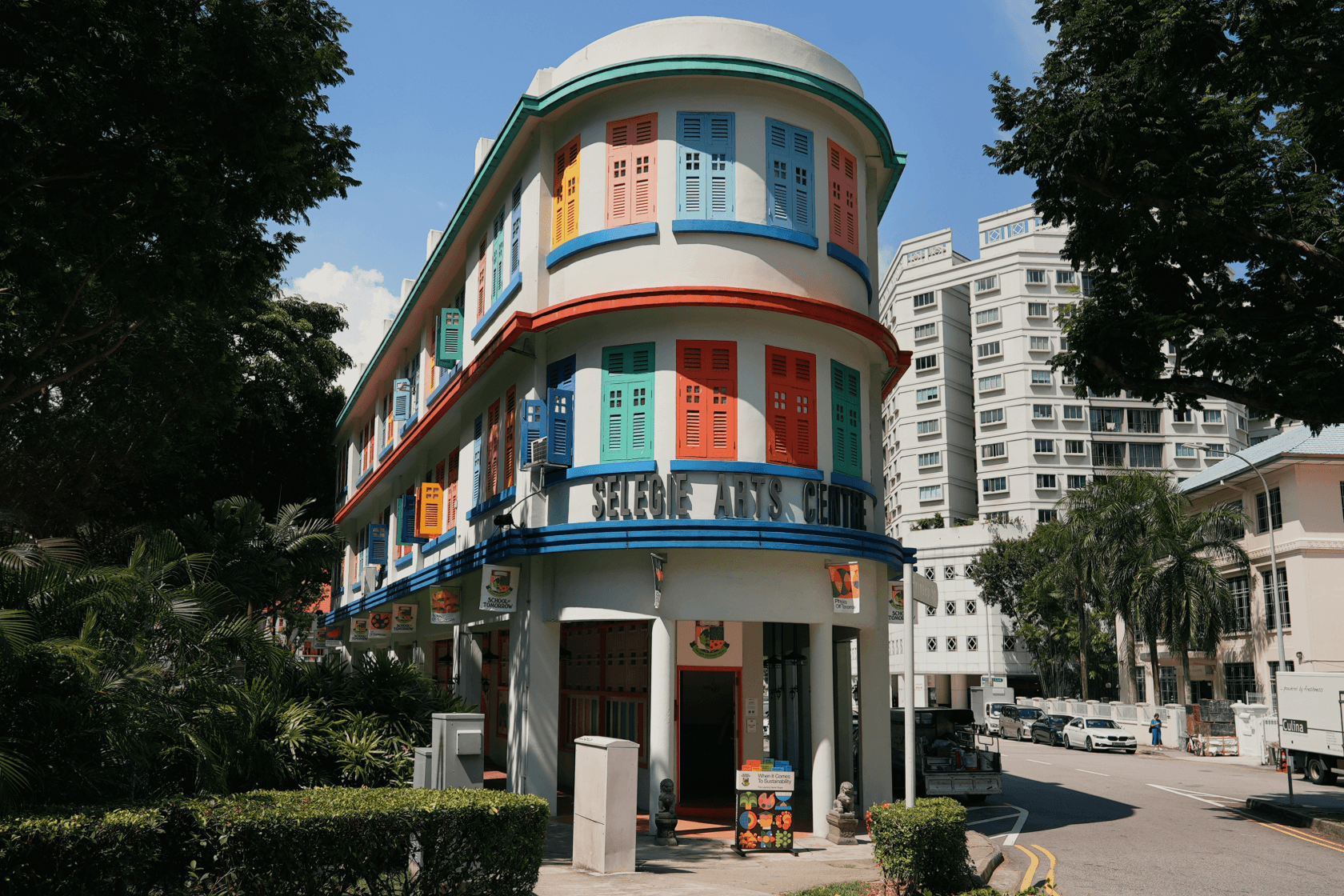
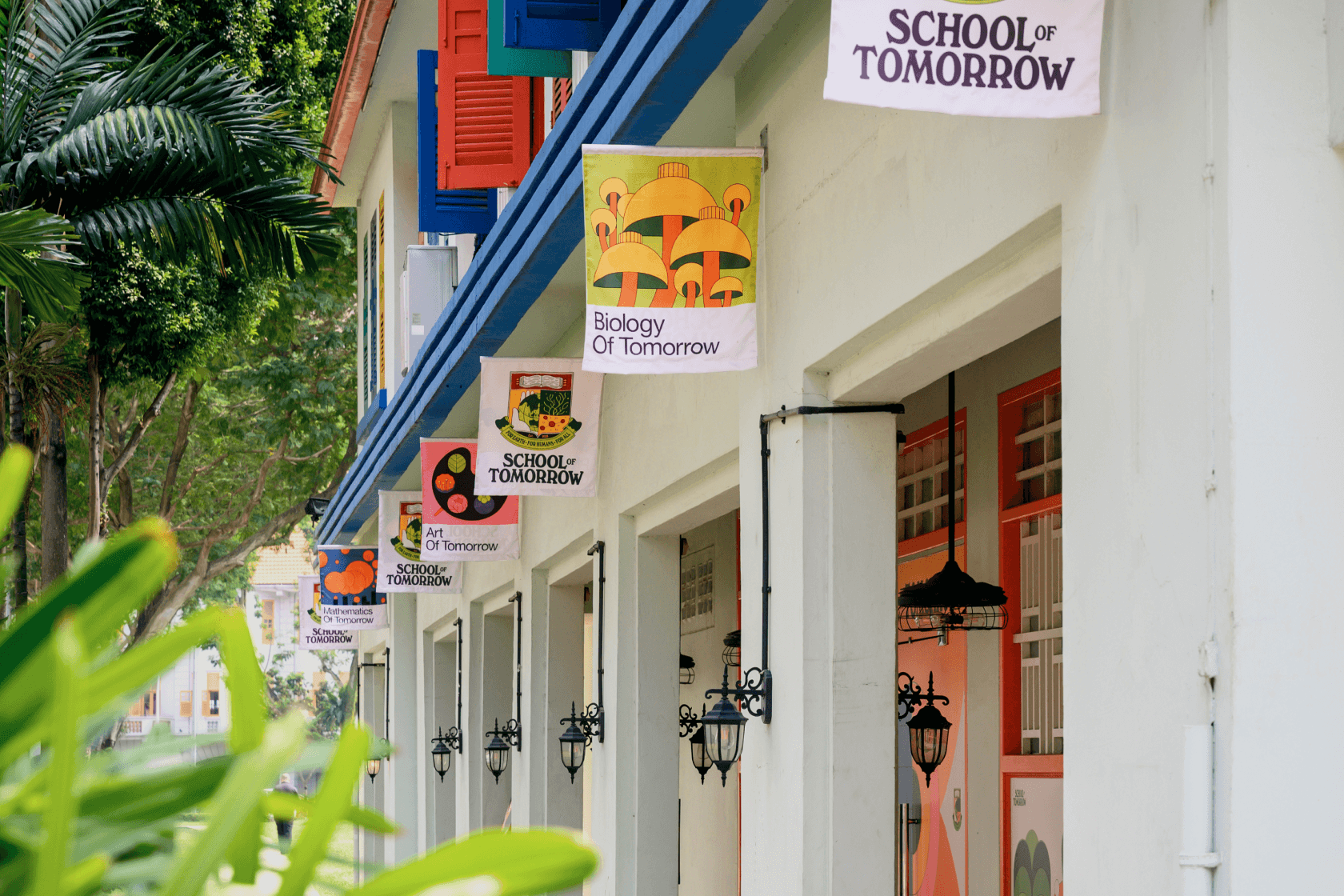
Dissecting The Plastic Problem In Biology Class
We borrow the anatomy models of Biology to address the issue of plastic pollution.
In place of organs and intestines, body cavities are filled with plastic waste, highlighting the prevalence of plastic and how it has even become part of our diet.
At the desks, we lay out sustainable alternatives like bio-plastics while over at the adjoining science lab, mycelium bio-composites are presented alongside experiments which demonstrate how to make your own bio-plastic from household materials such as milk and corn starch.
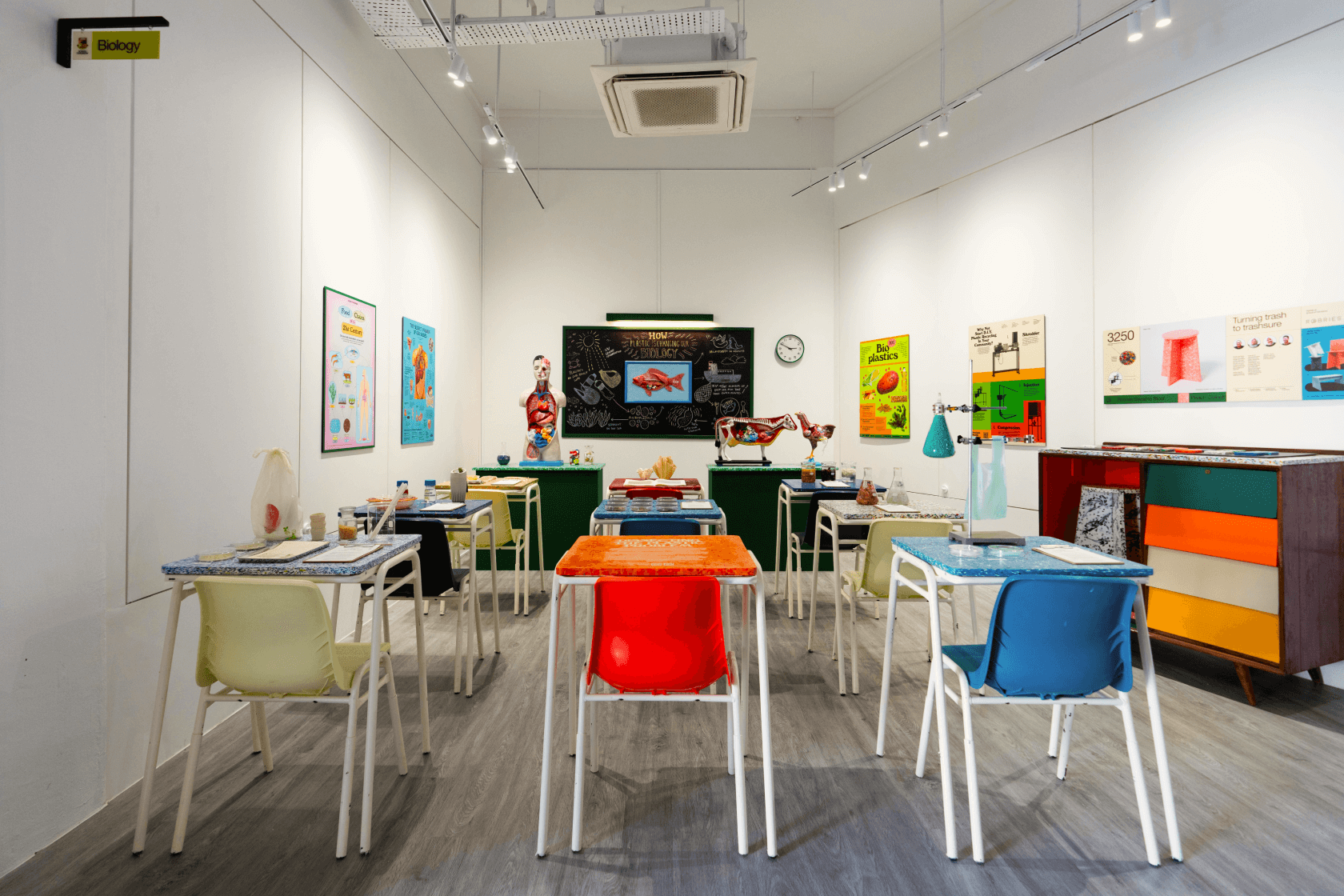
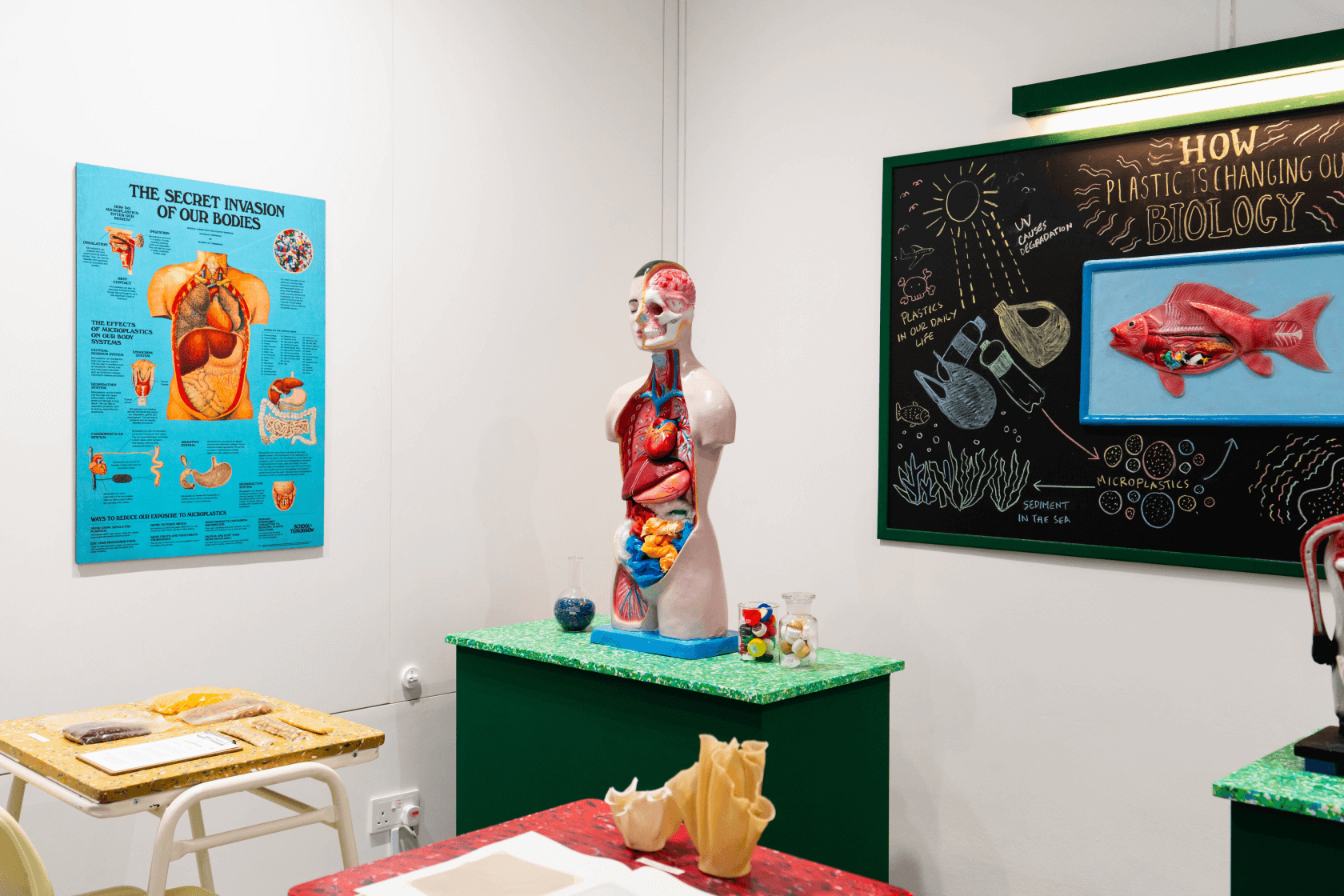
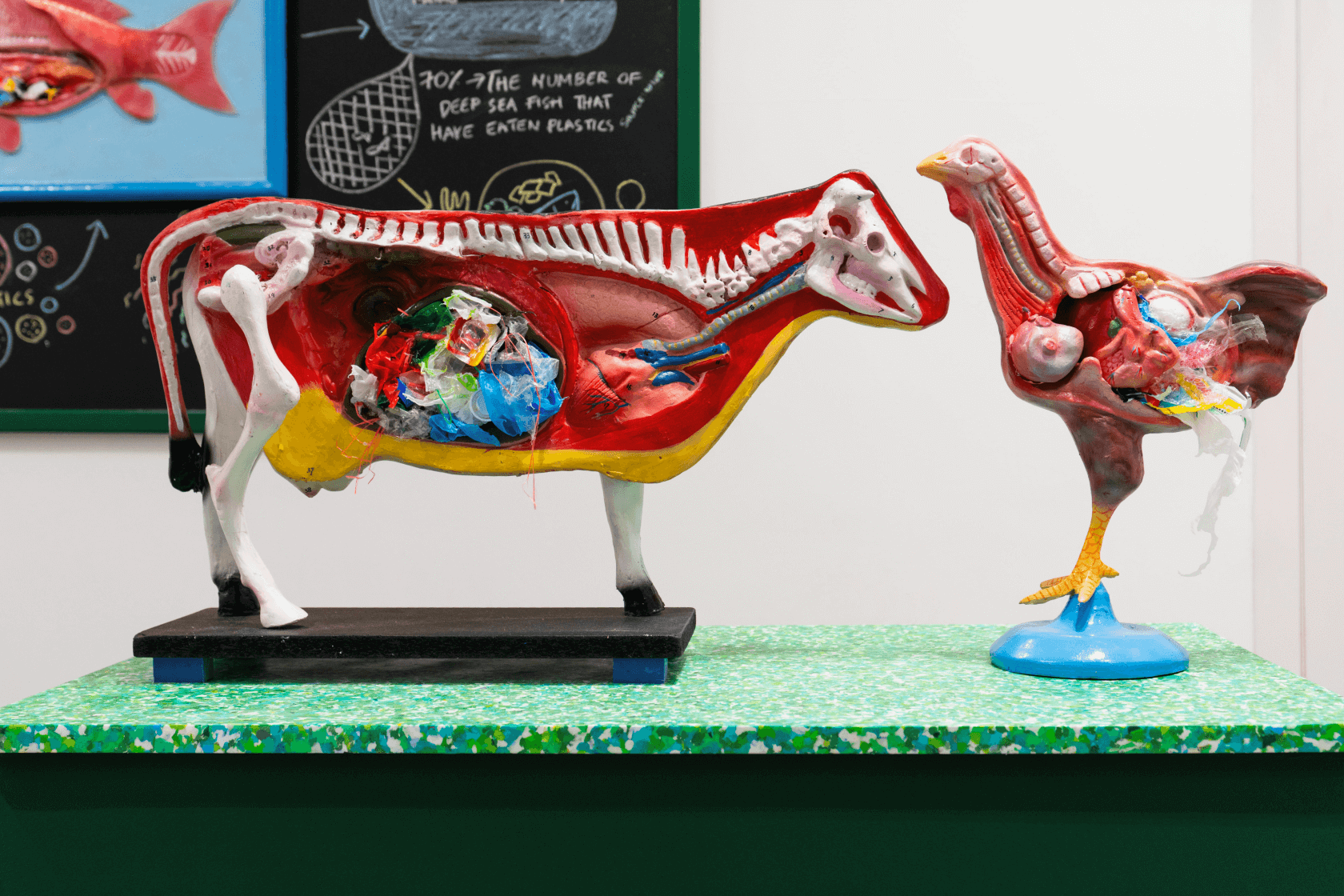
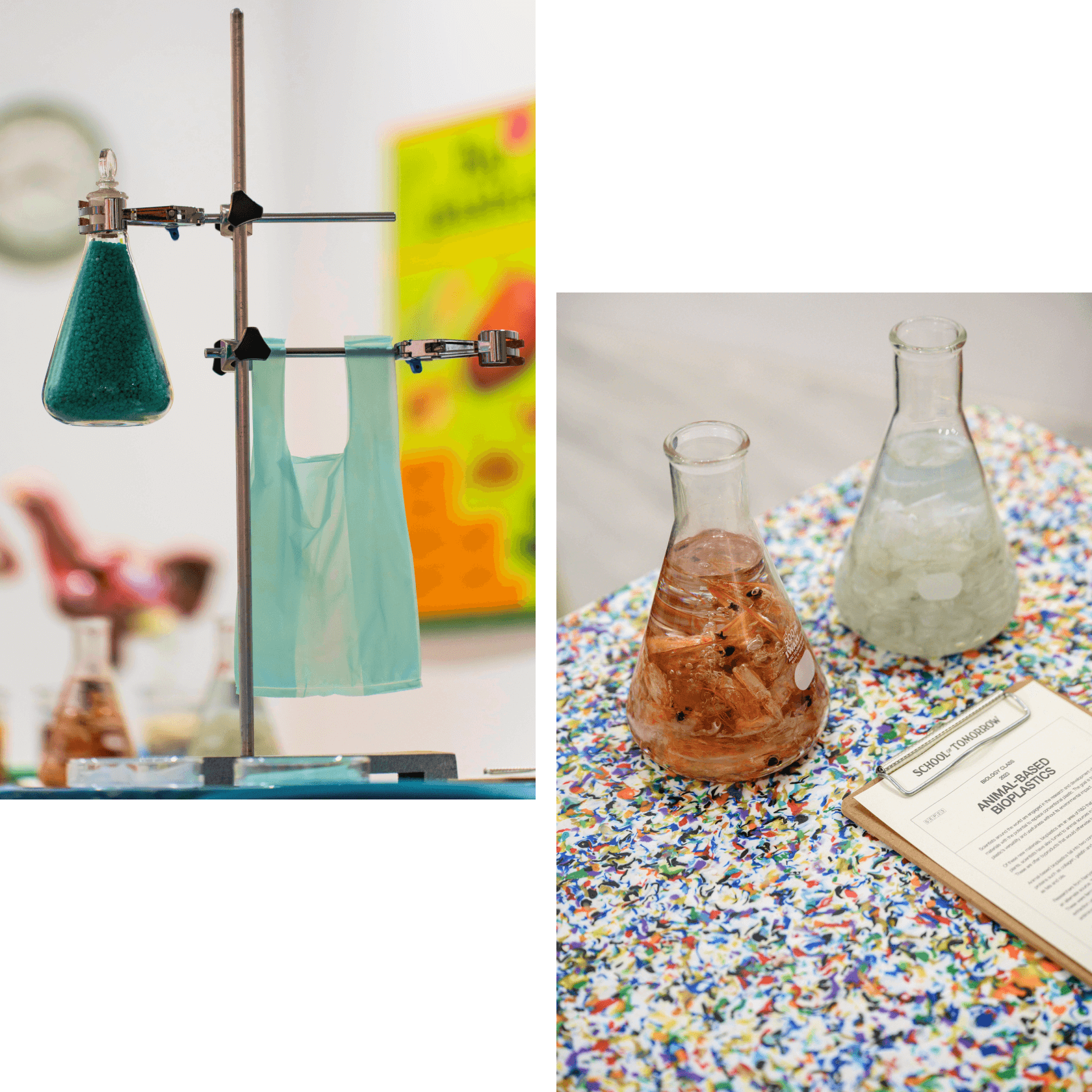
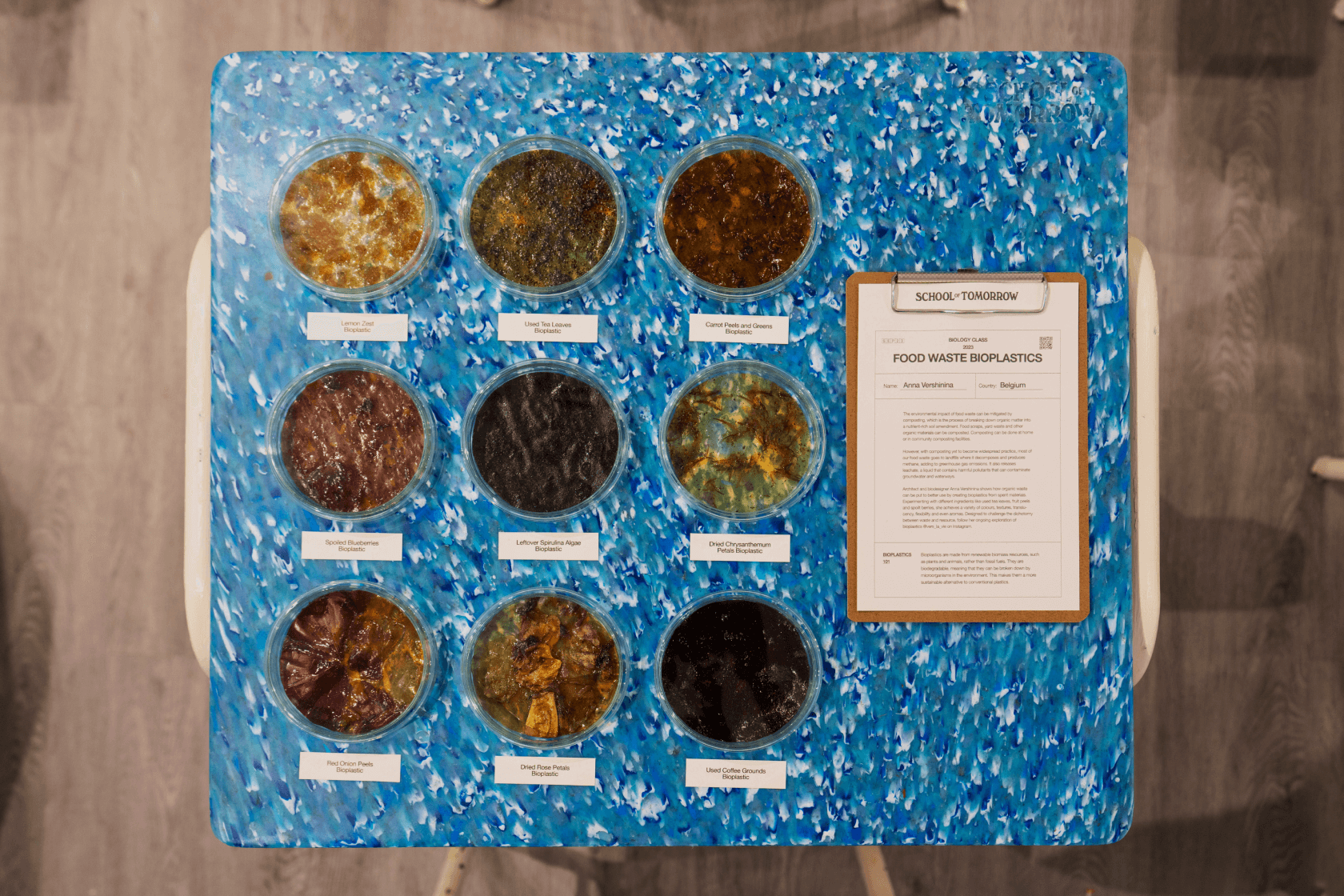

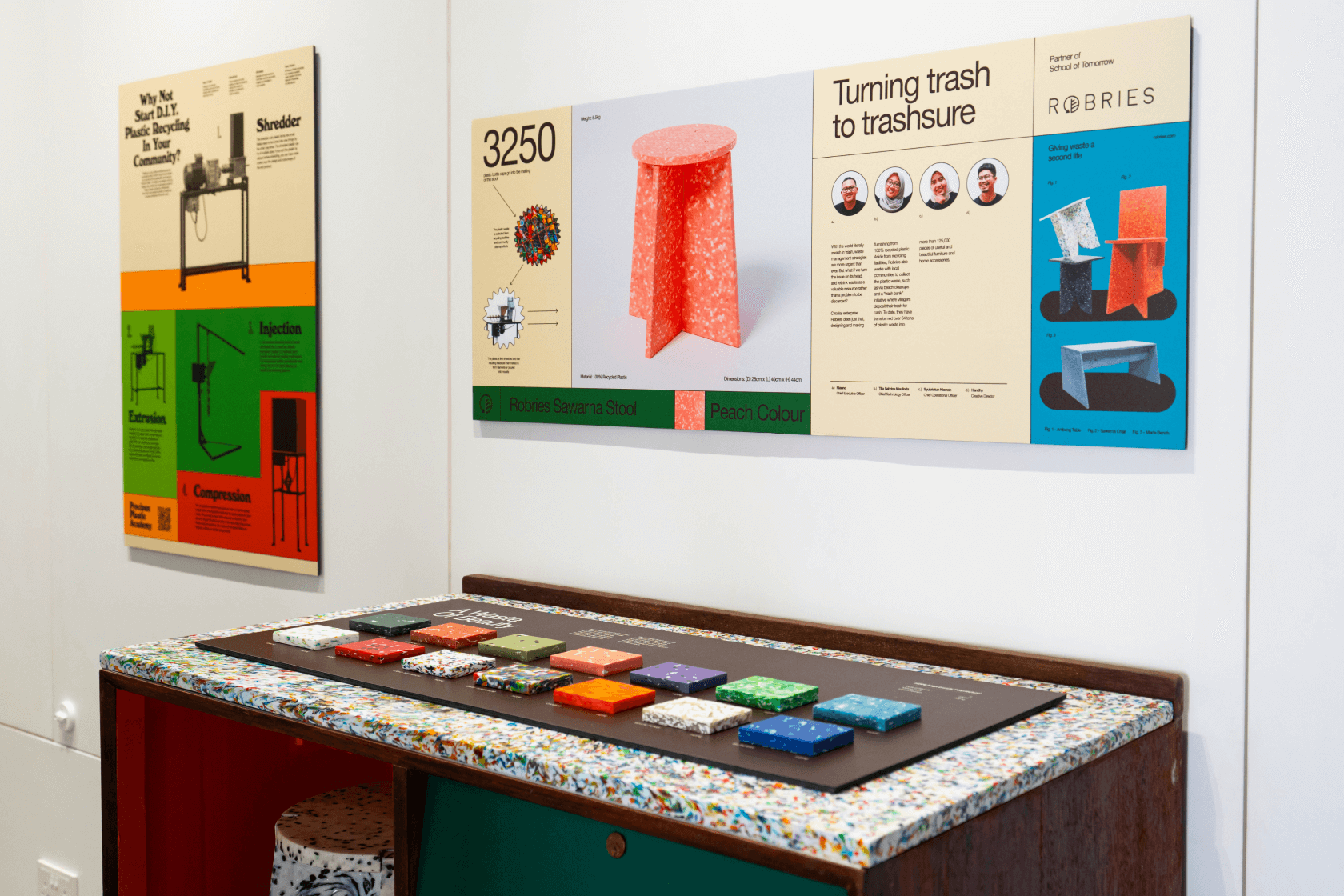
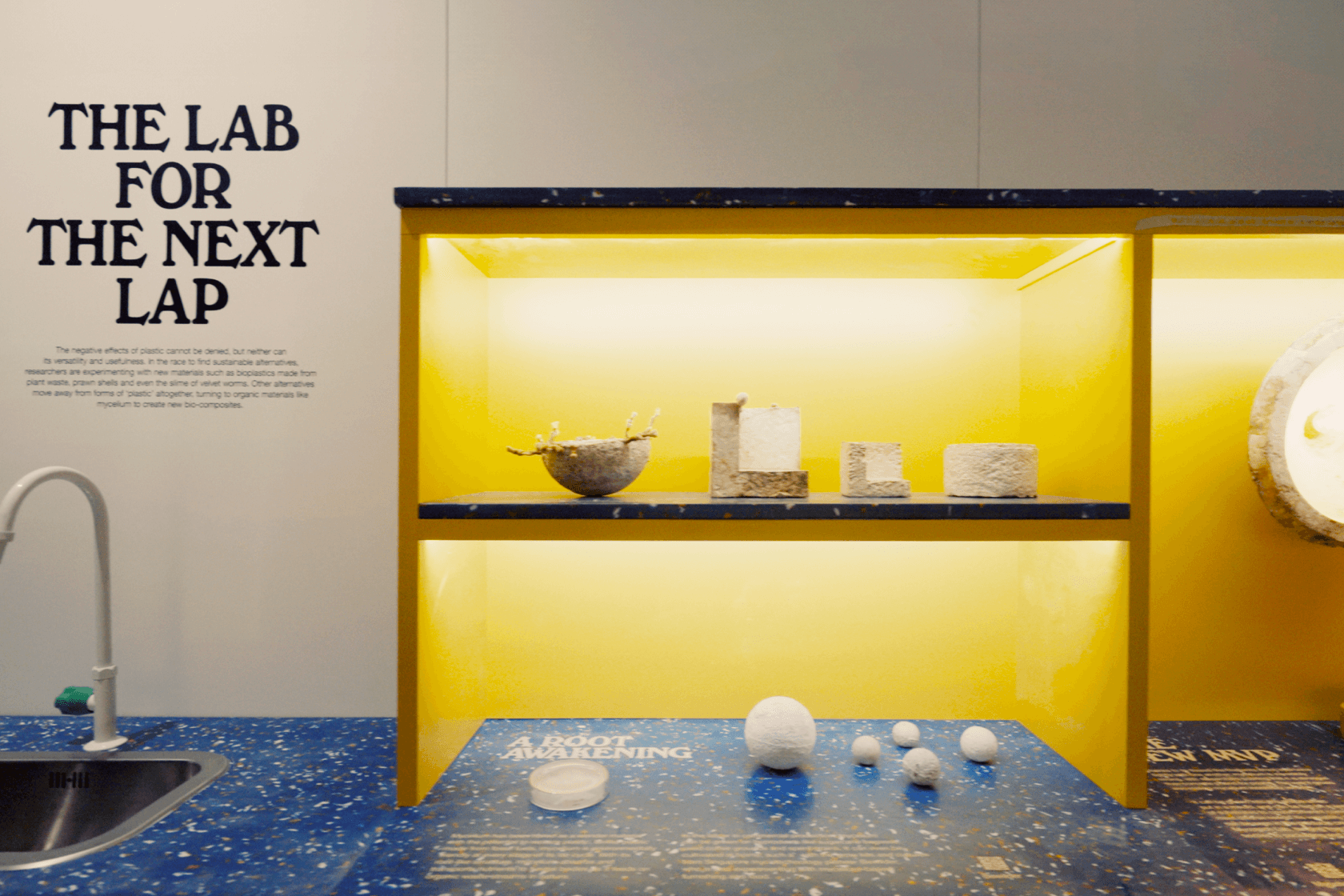
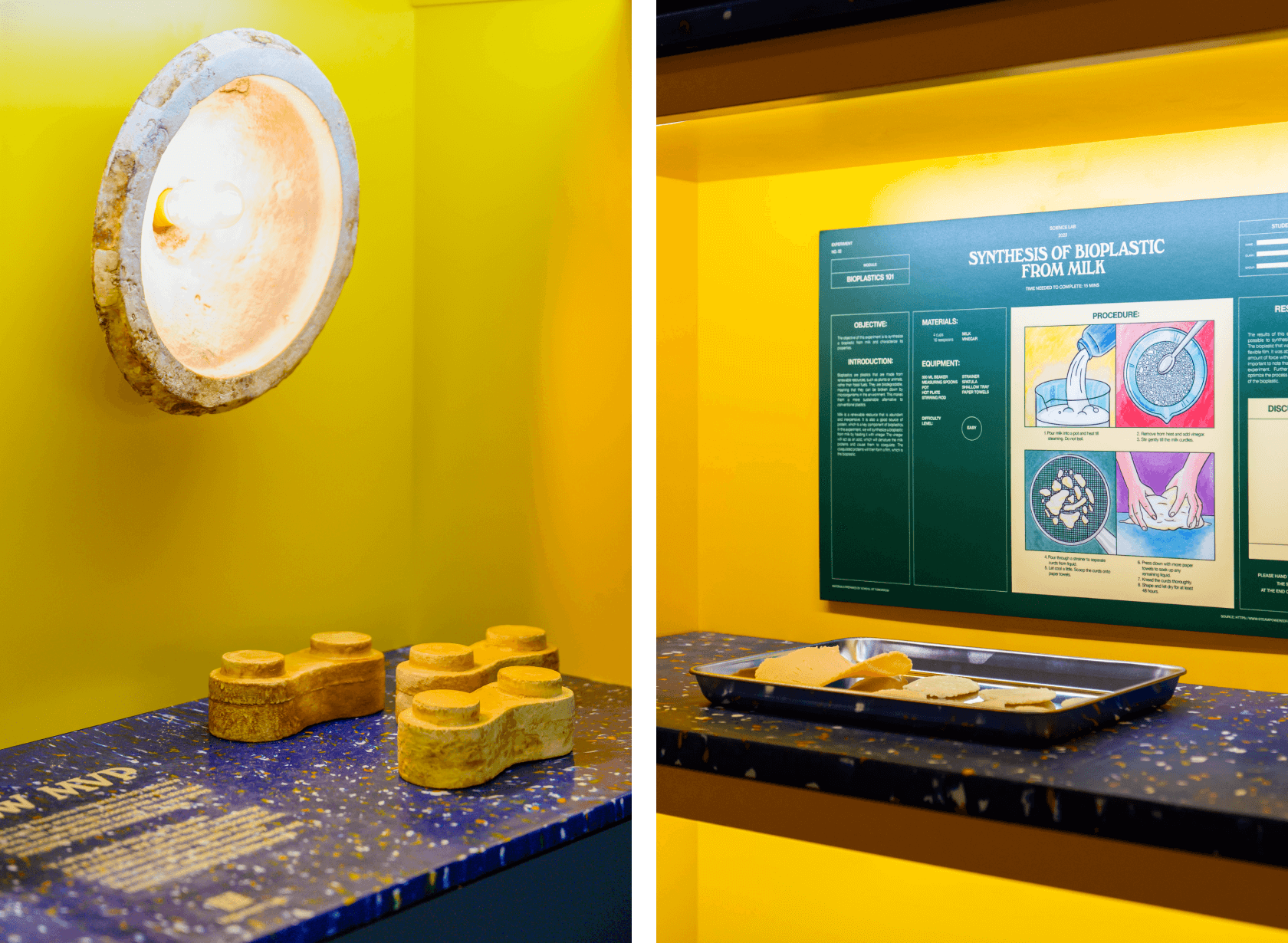
Chemistry Class Turns The Table On Waste
The periodic table is re-imagined with 45 new elements to challenge the wasteful way we use and deplete Earth’s limited resources. The new elements include novel innovations being developed in the lab such as Ae (Algae) and Bn (Brewed Protein); as well as surprising materials upcycled from waste such as Df (Dog Fur) and Rp (Rambutan Peel) — showing how resources can be reused infinitely in a circular economy.
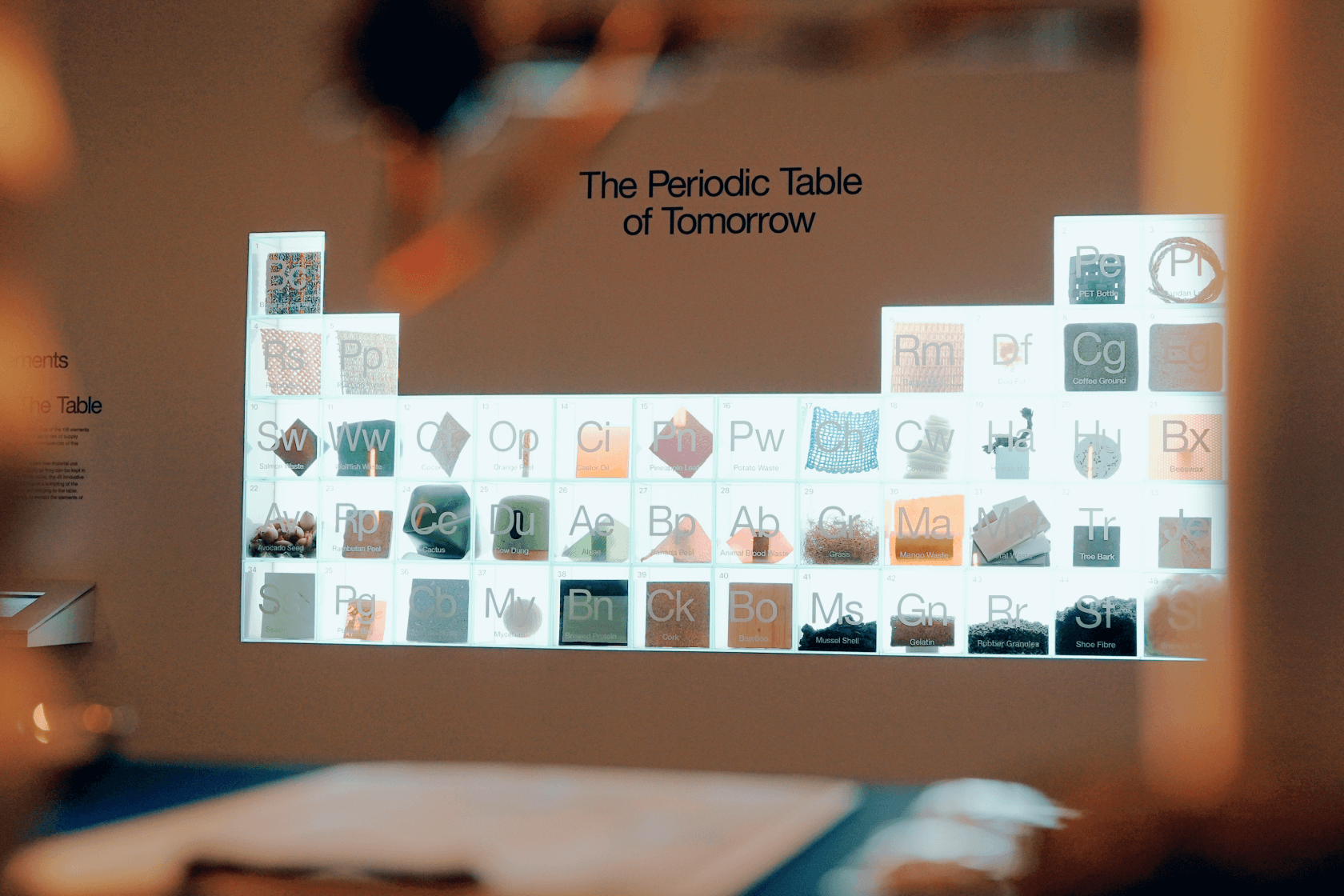
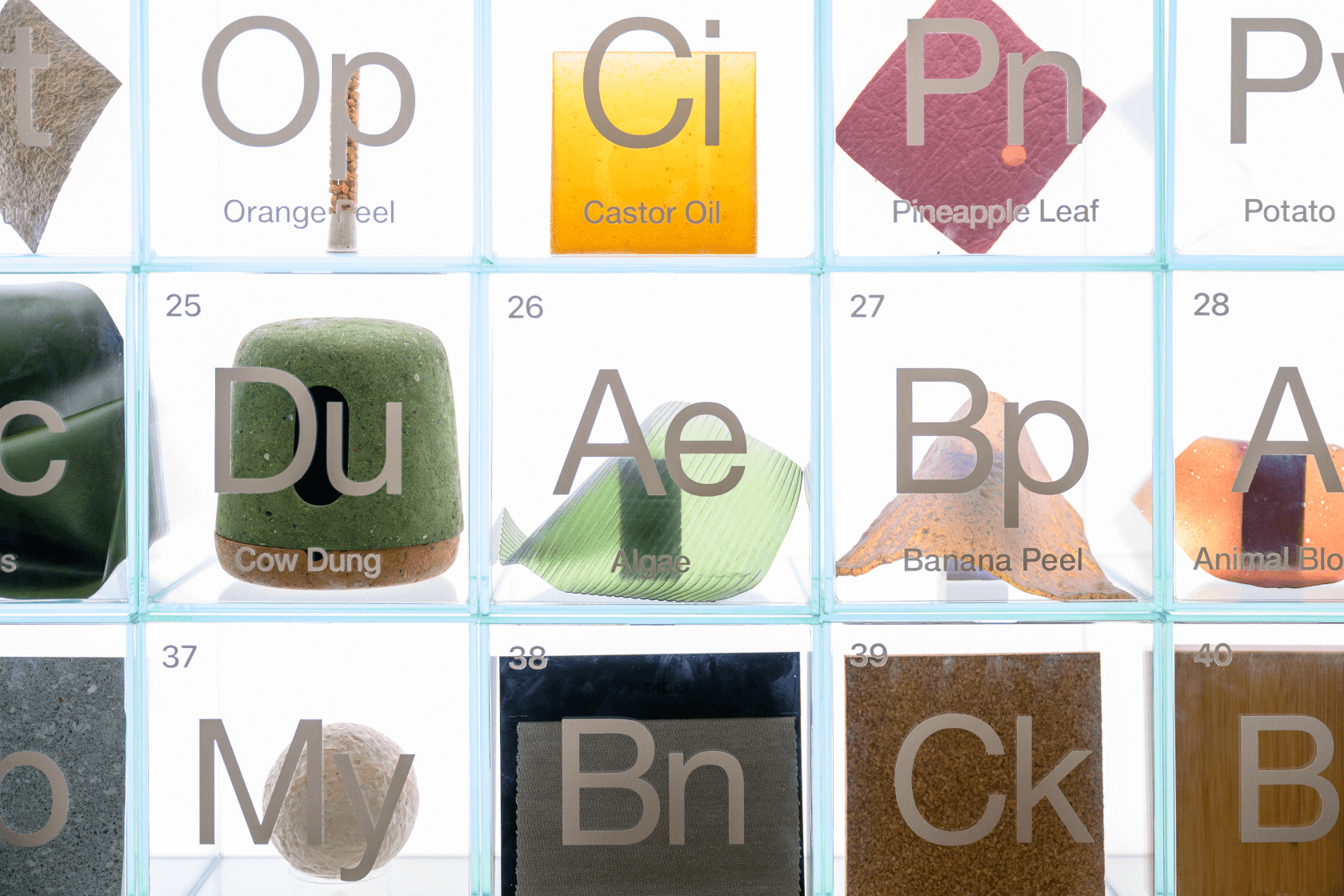

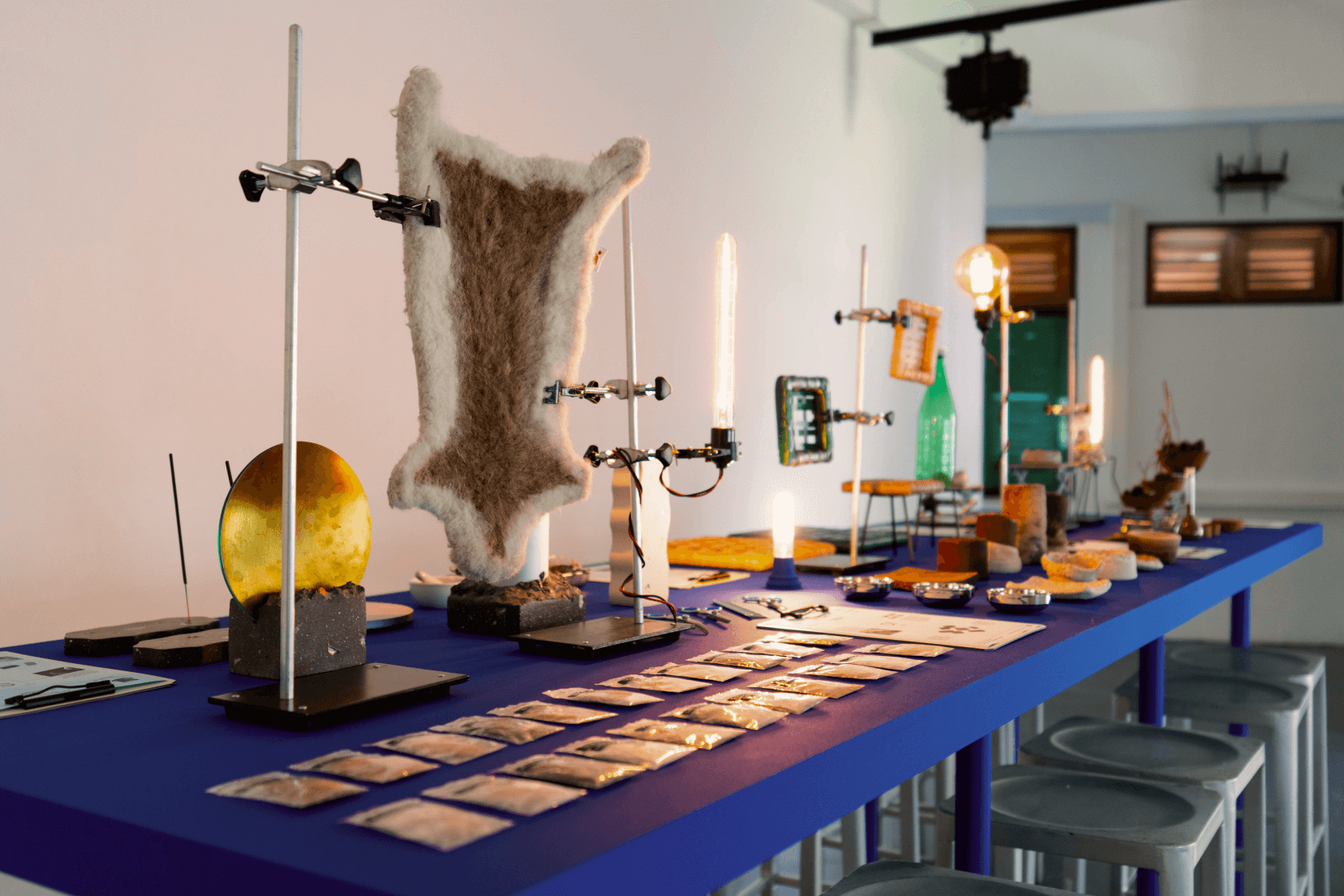
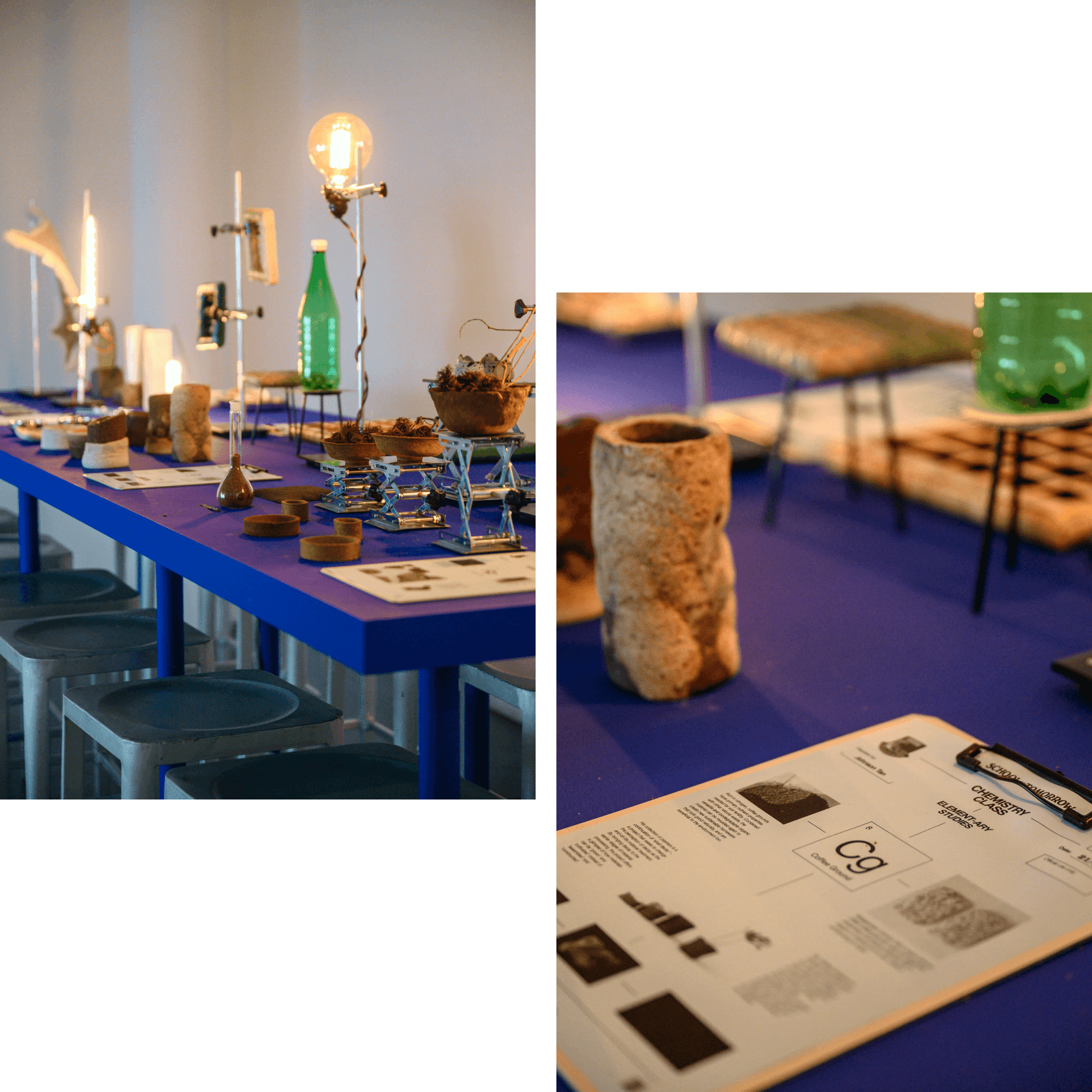
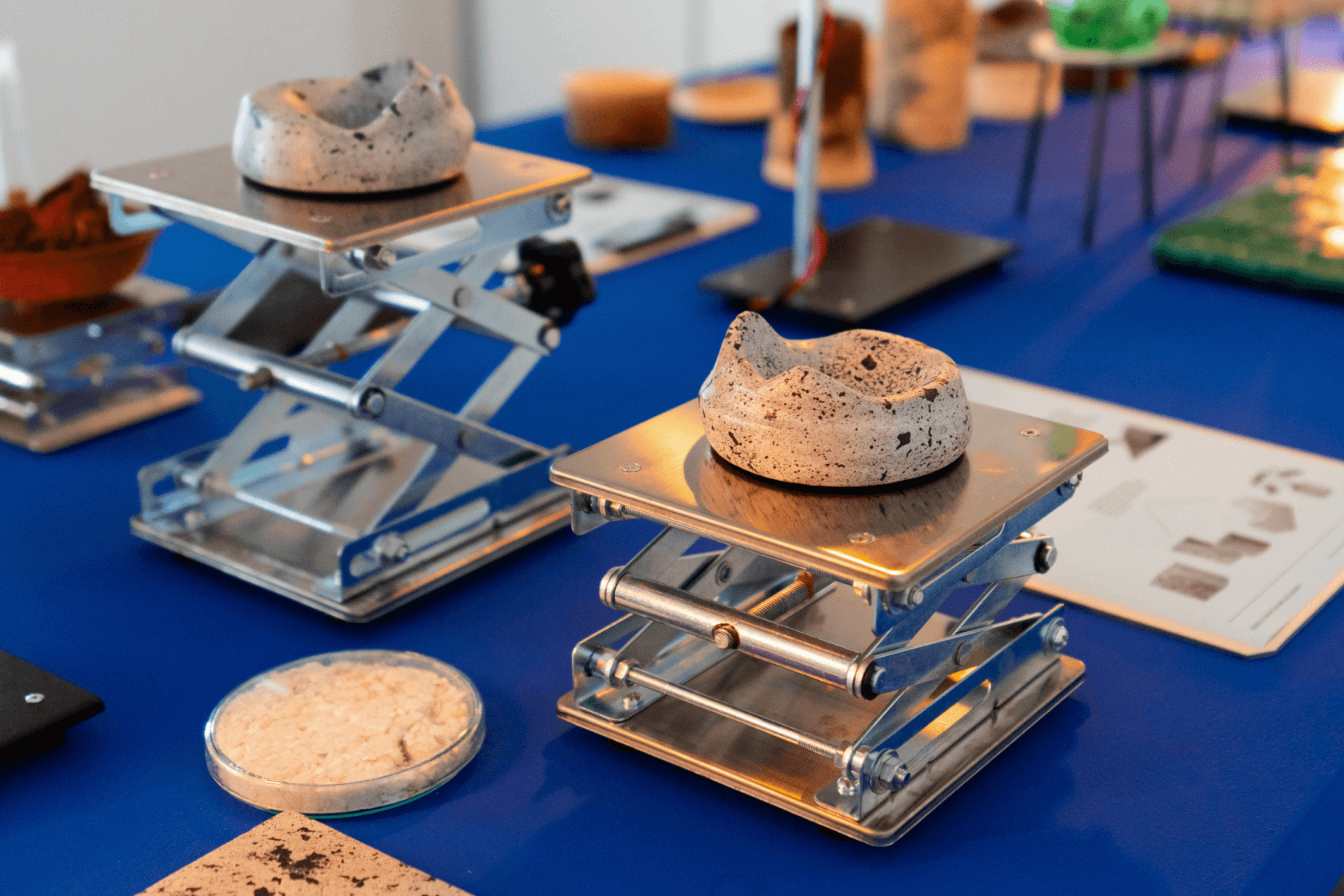

A Model Of Ecological Overshoot
For Physics Class
From the overconsumption of food and goods to the excessive use of energy, we are living way beyond our ecological means in defiance of the laws of Physics. We illustrate this fact by hanging up a solar system with a glaring anomaly. Instead of one, it has 3½ Earths, derived from Singapore’s Earth Overshoot Day* which was 8 April for the year 2023.
*The day consumption of our planet’s resources exceeds what it can replenish in the same year. In the case of Singapore, we would need more than 3 Earths to sustain our current habits.
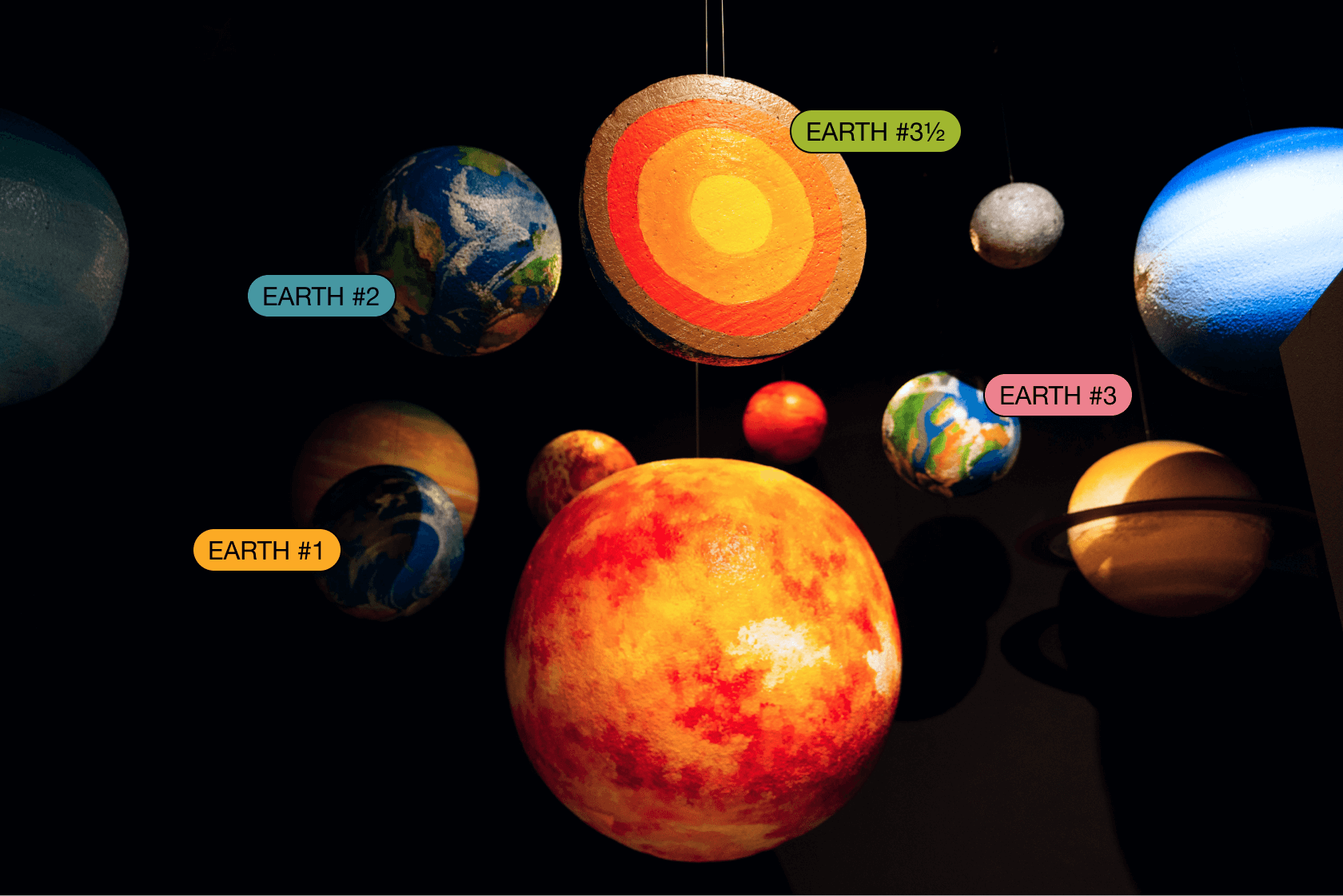
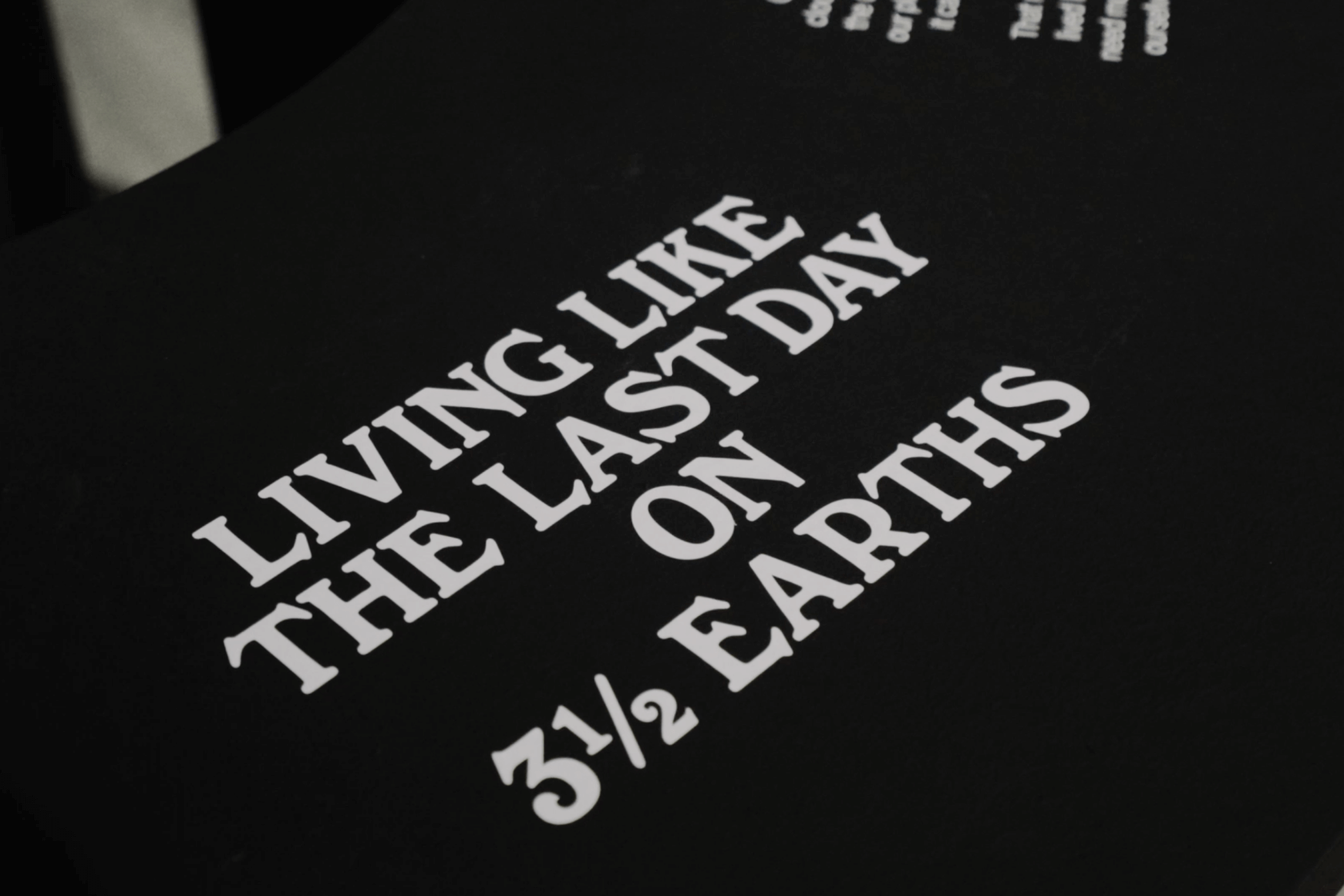
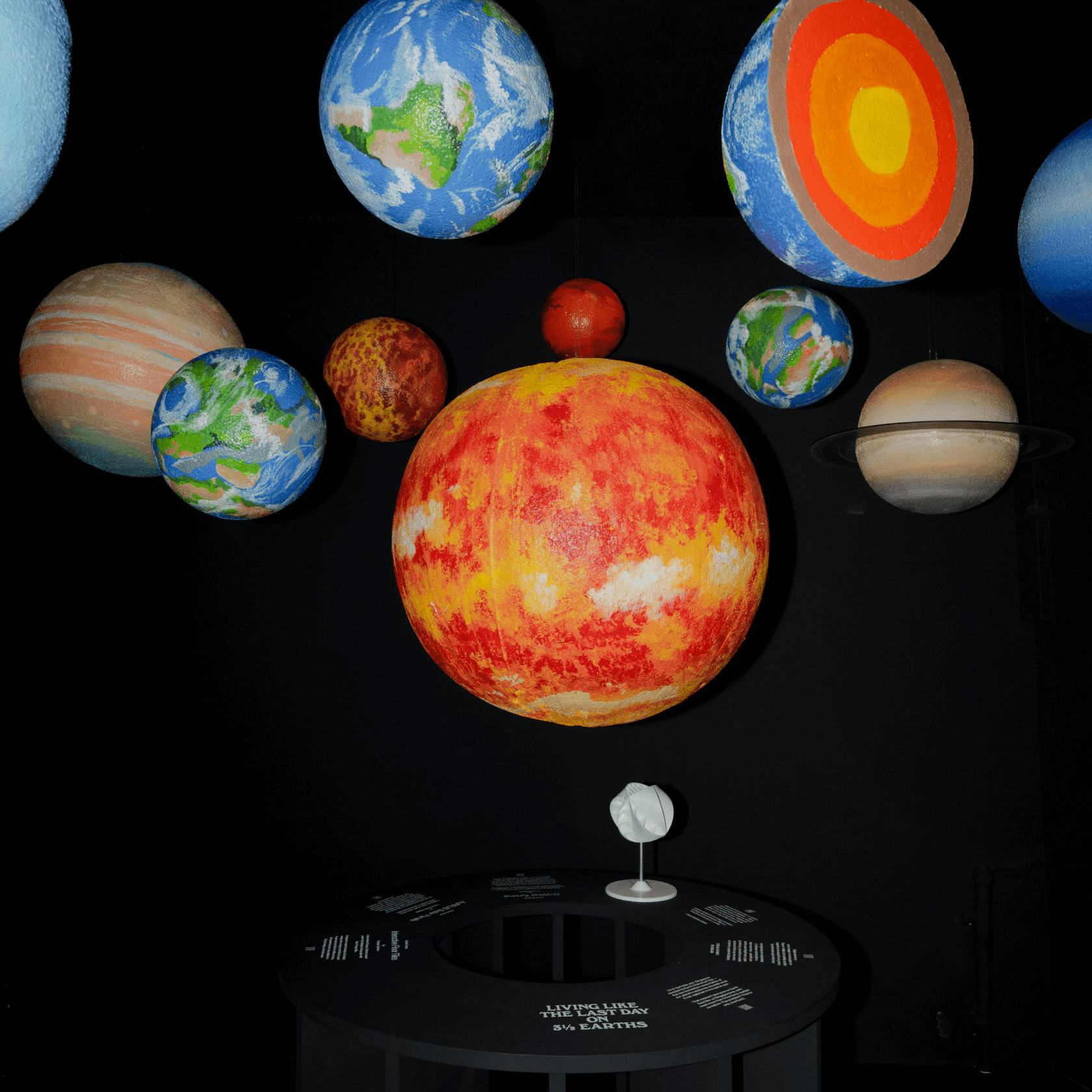
Calculating Our Carbon Footprint In Math Class
Unlike real life, Math proves to be a popular subject with an interactive carbon footprint calculator that totals a student’s score across six areas: food, commute, shopping, home, travel and recreation. No matter the score, we show there’s always room for improvement, using simple charts and infographics to share ways of changing our habits and lifestyle to reduce our ecological impact.
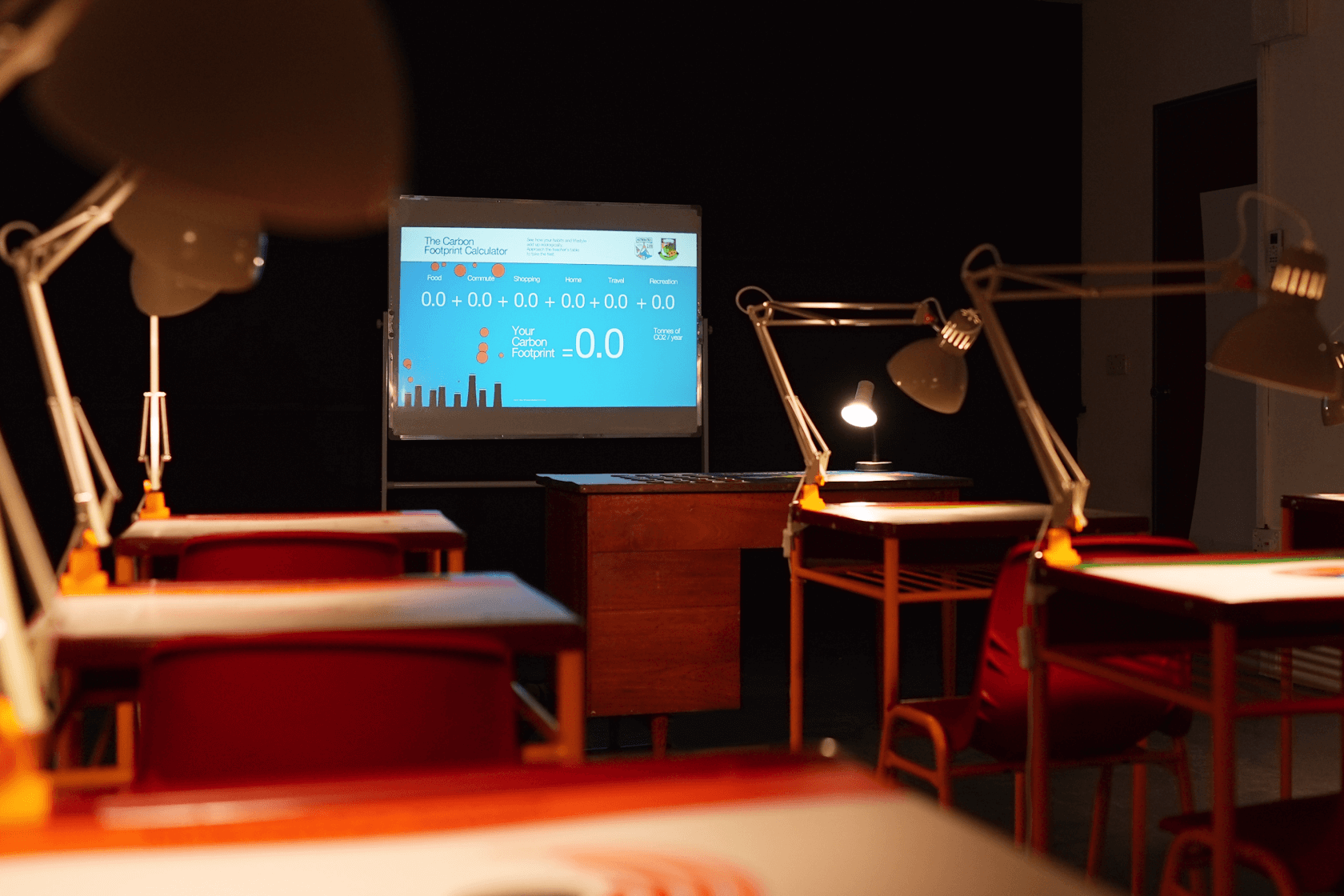
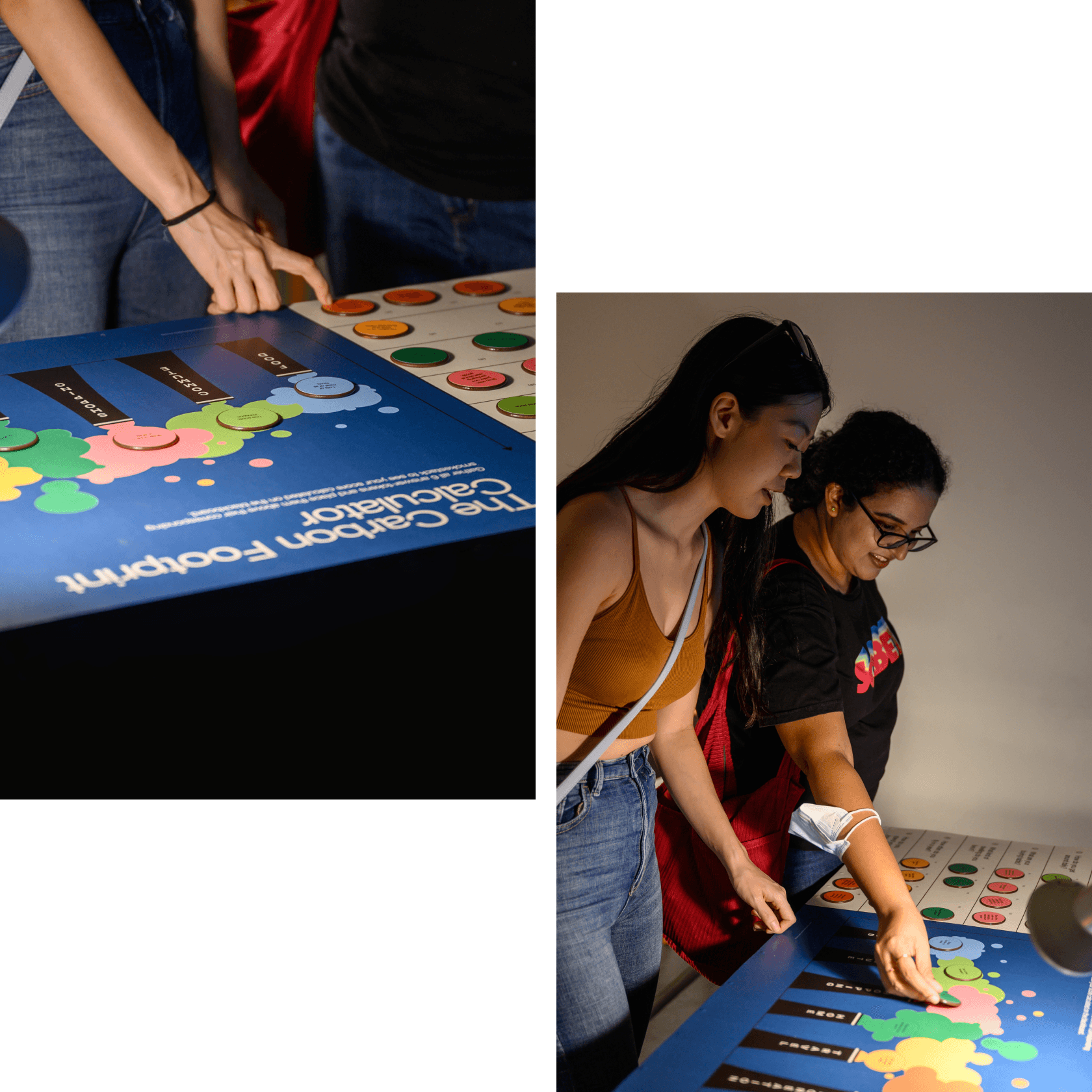
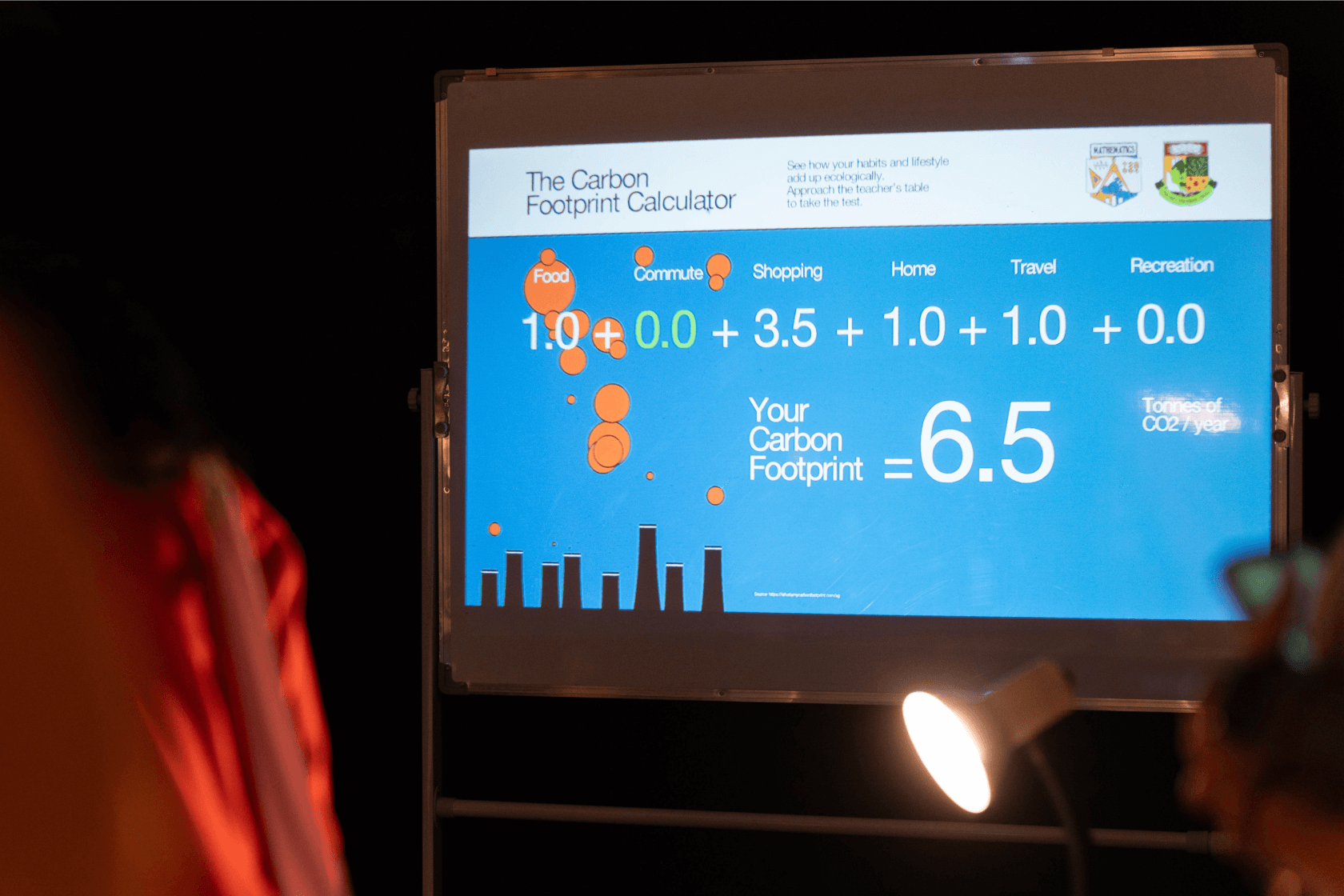

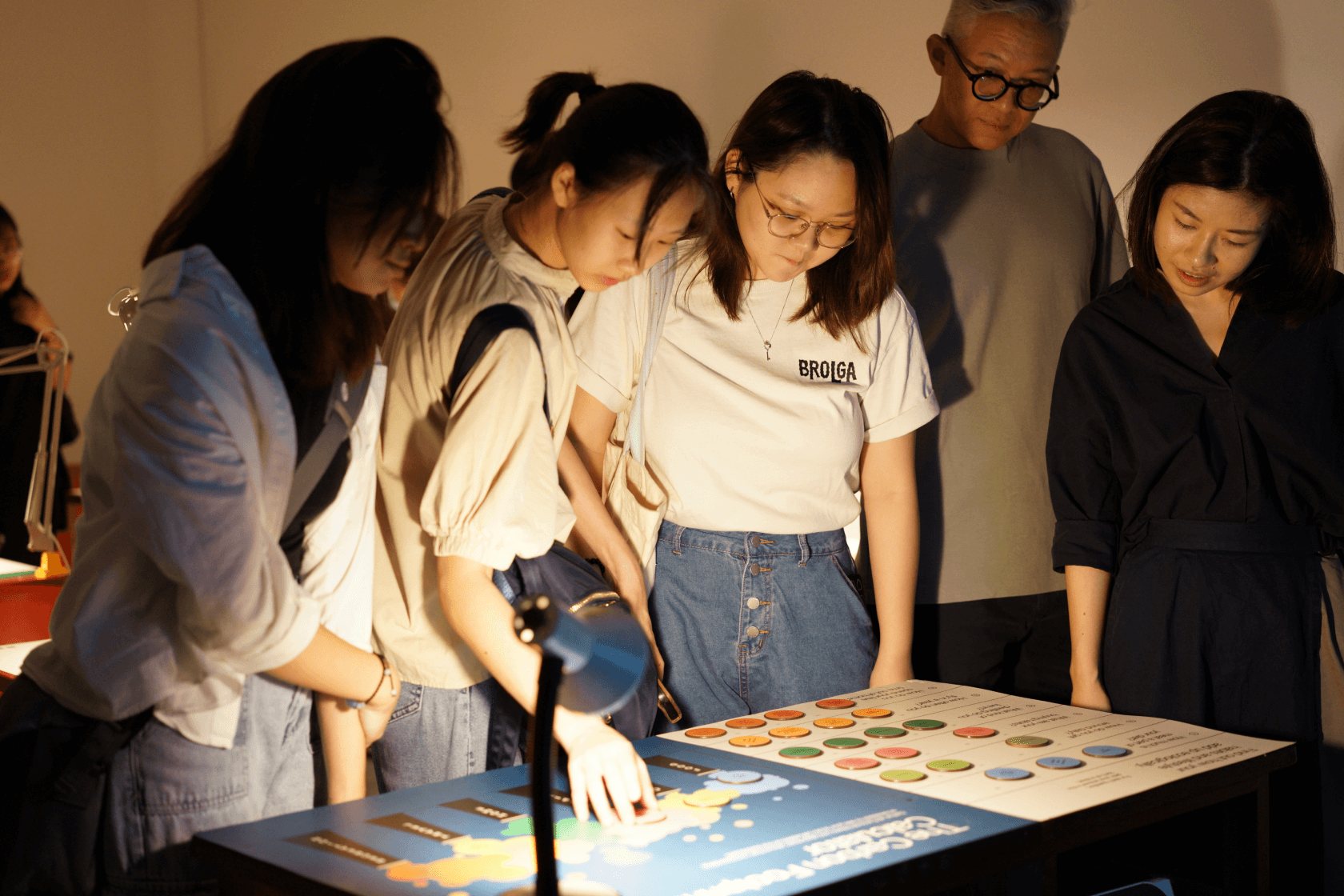
A Disastrous Lesson In Climate Change
For Geography Class
How is climate change changing the world’s geography? With rising temperatures melting glaciers, raising sea levels and eroding coastlines, our flooded classroom brings the consequences to vivid life. Amidst the mess, maps and posters providing more information on climate change lie awaiting students’ discovery.
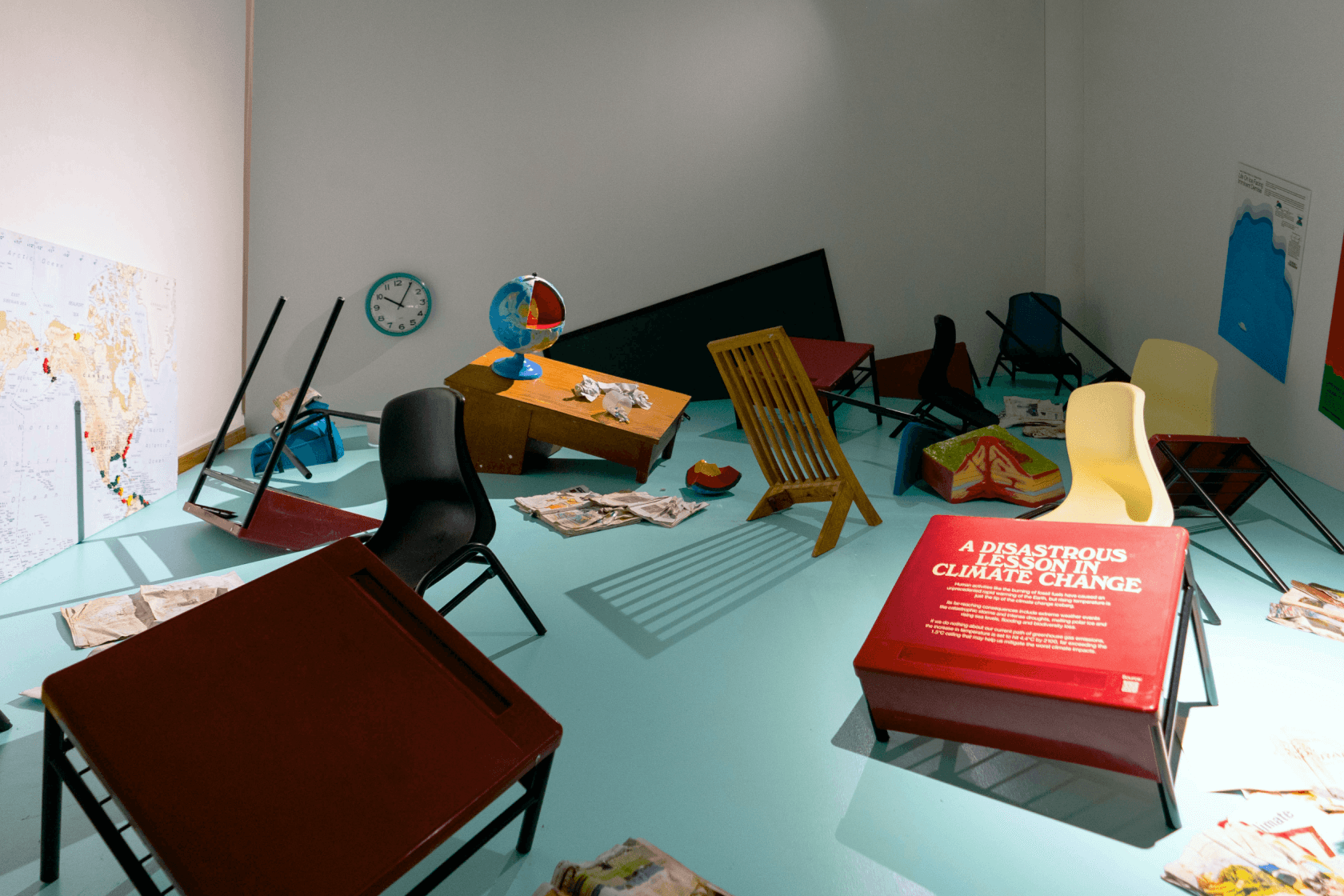
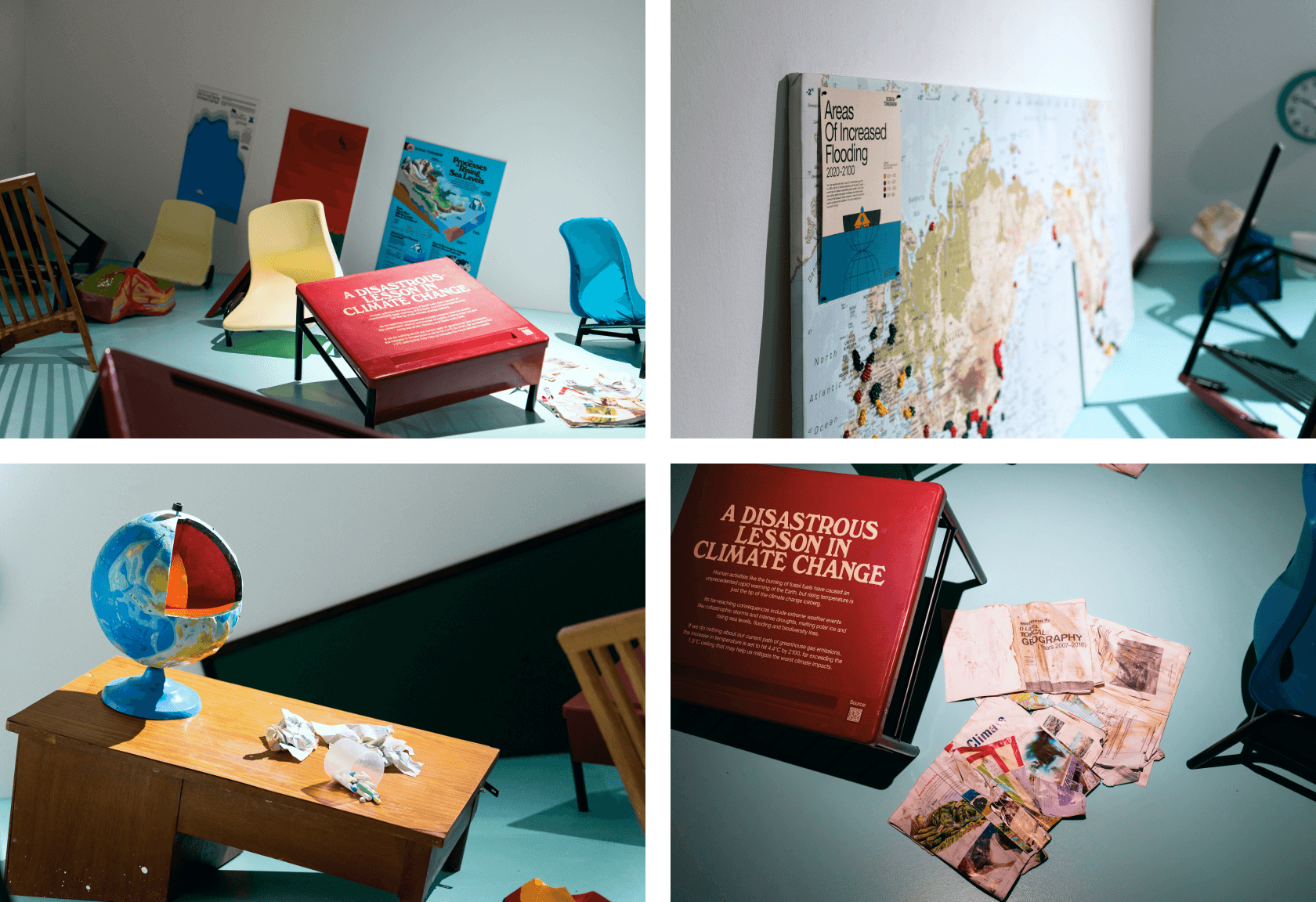
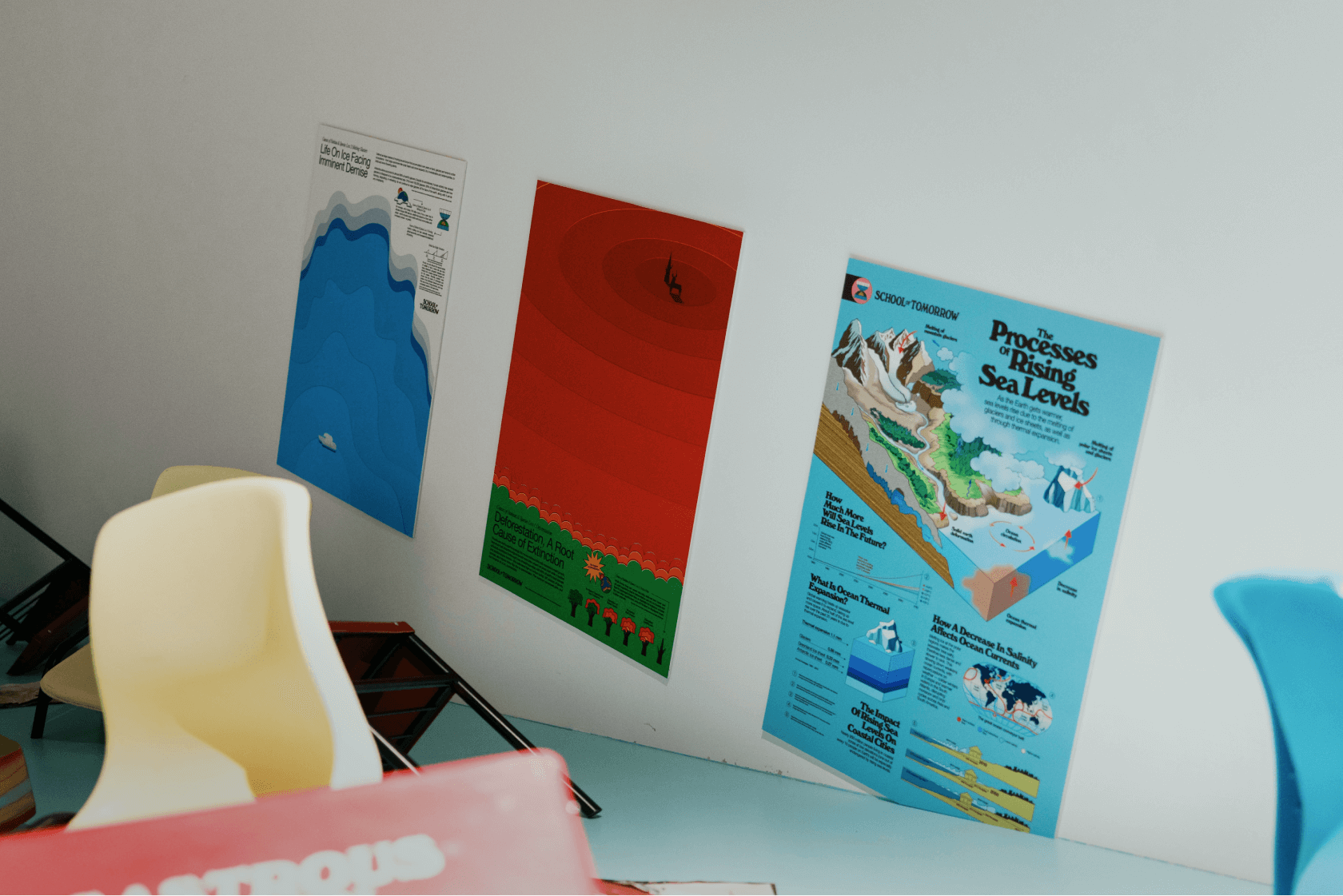
Home Economics Class Shows
How To Mend Our Ways
No thanks to fast fashion, the environmental costs of the fashion industry are rising. Other than tips on how to extend the lifespan of clothing, students also learn about how fashion can be more sustainable by using circular manufacturing methods and eco materials like ‘leather’ made from seaweed, mycelium and pineapple.
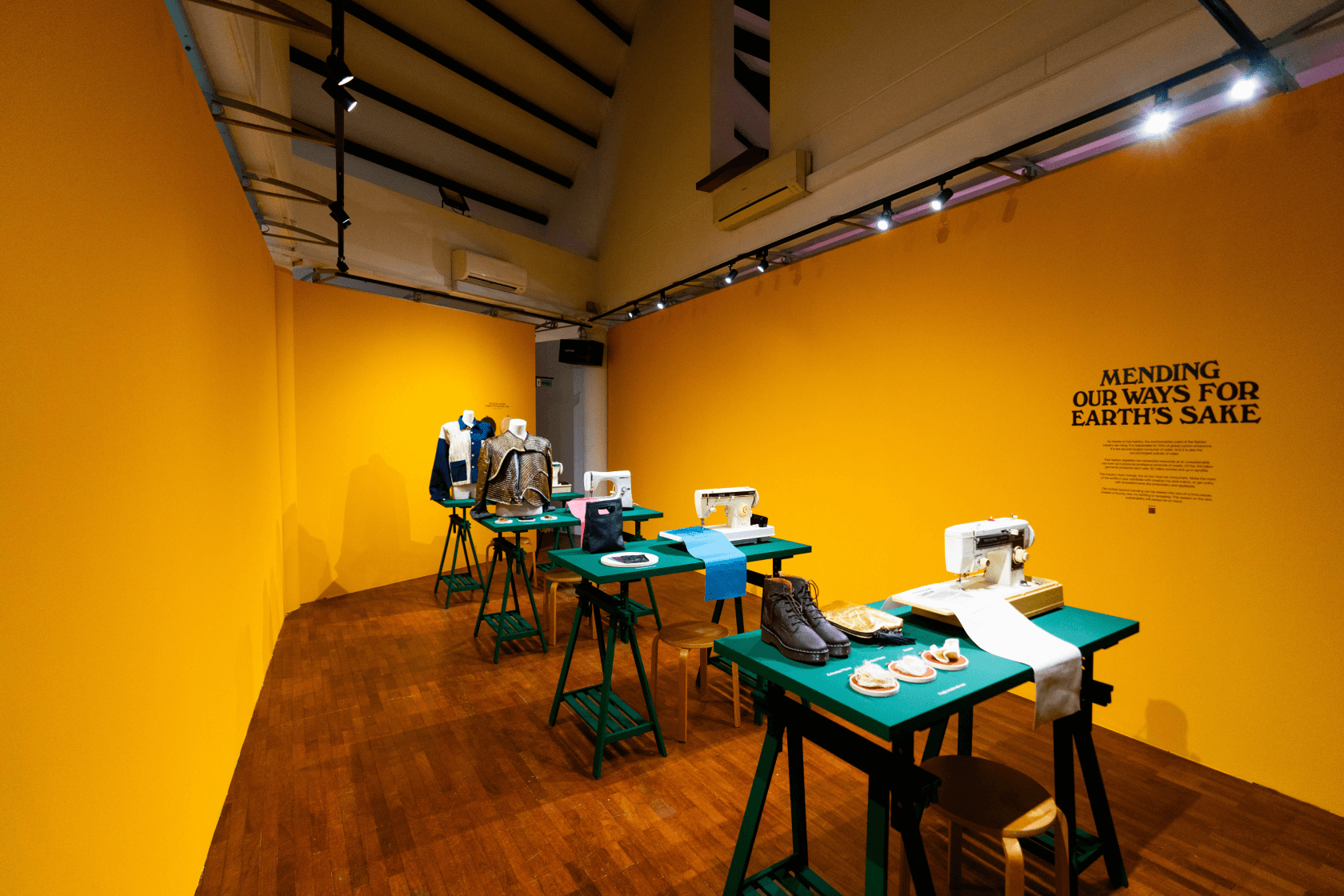
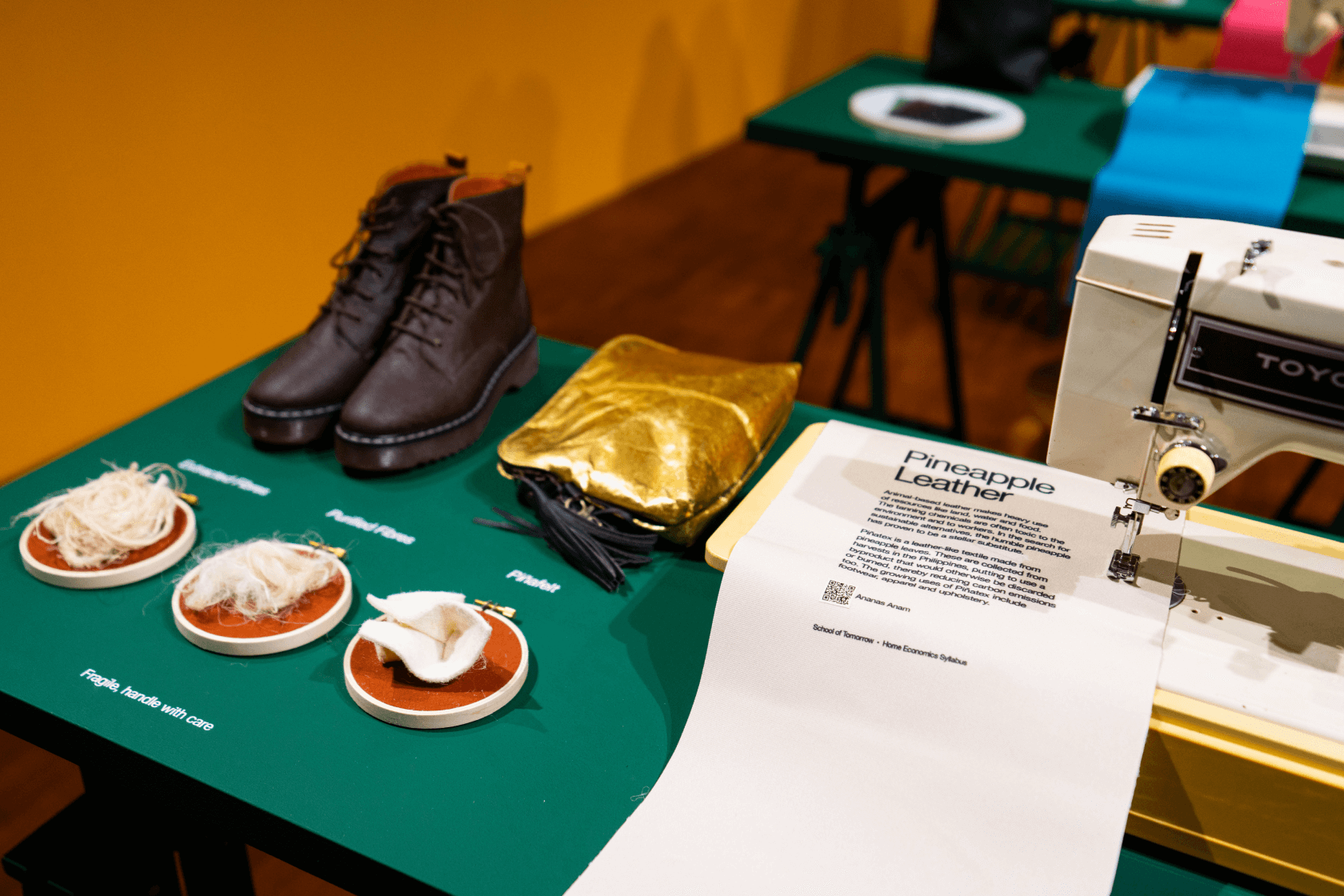
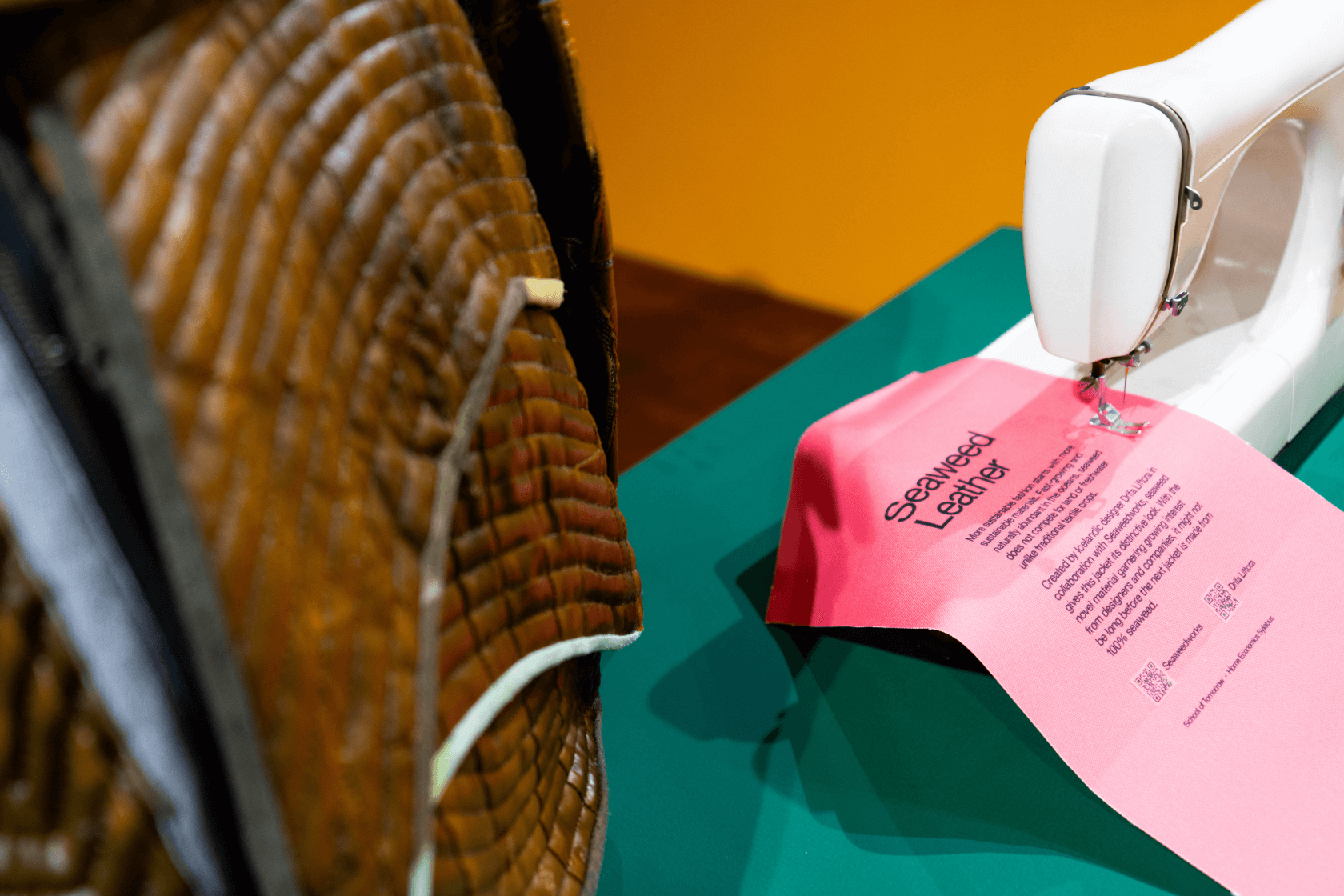
Drawing On Nature For Art Class
Still life with a twist. The plates of fruits and pots of plants not only serve as still life objects, they provide the ingredients for making the paints used in class: Mango, Cosmos and Blue Pea. Students are invited to get creative while learning about natural pigments made from botanical waste like fallen leaves, flowers, fruits and bark.
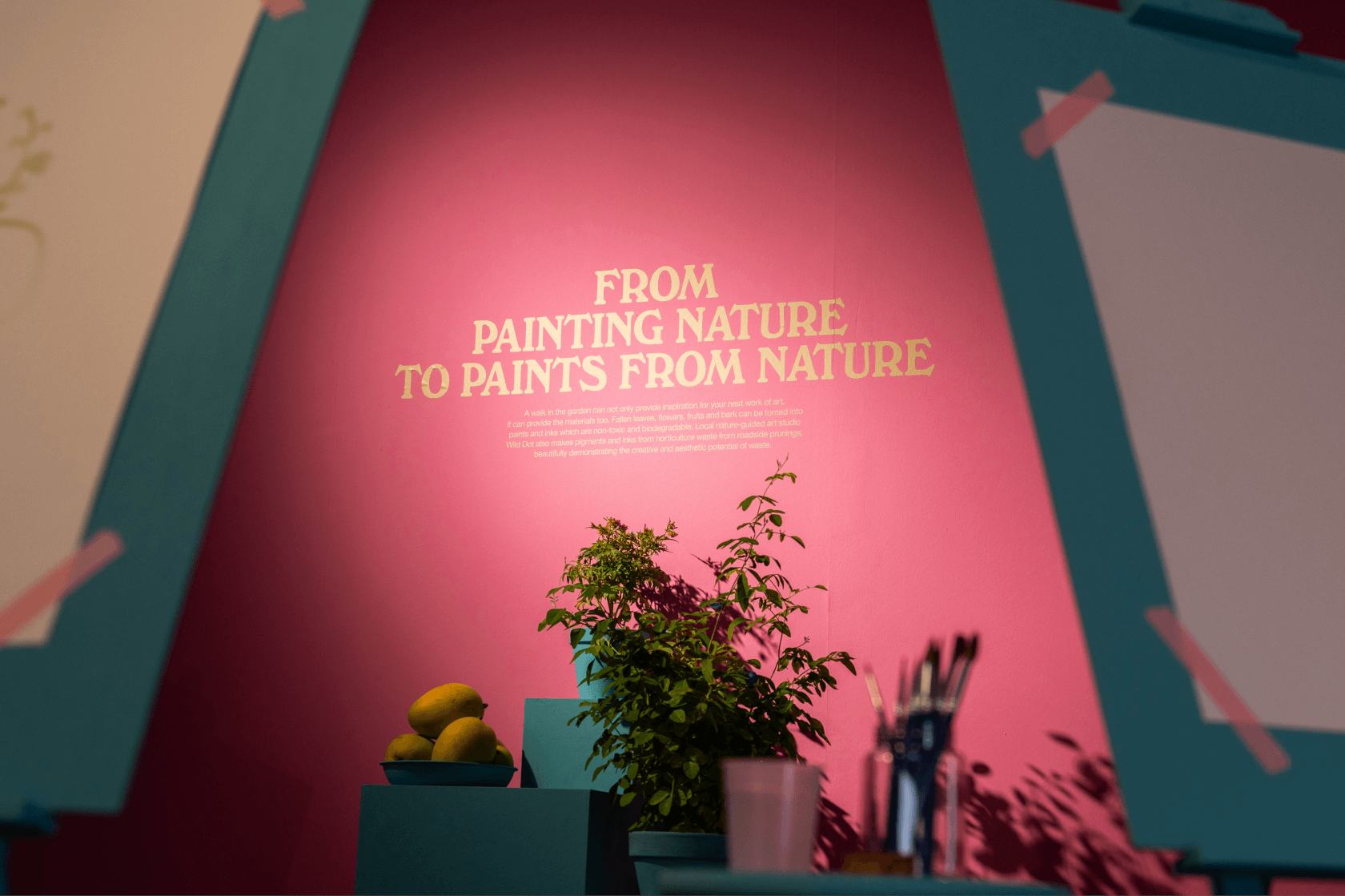
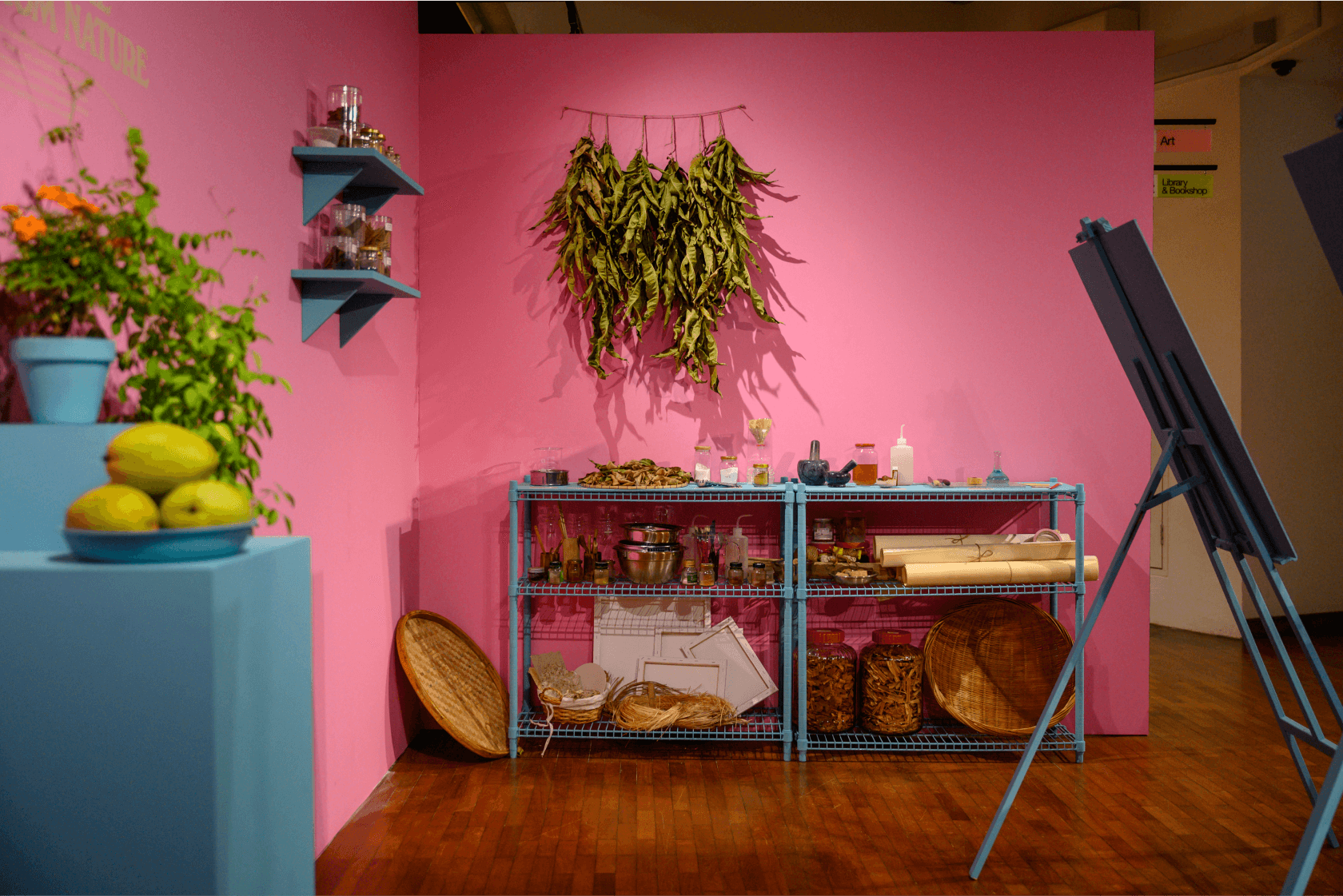
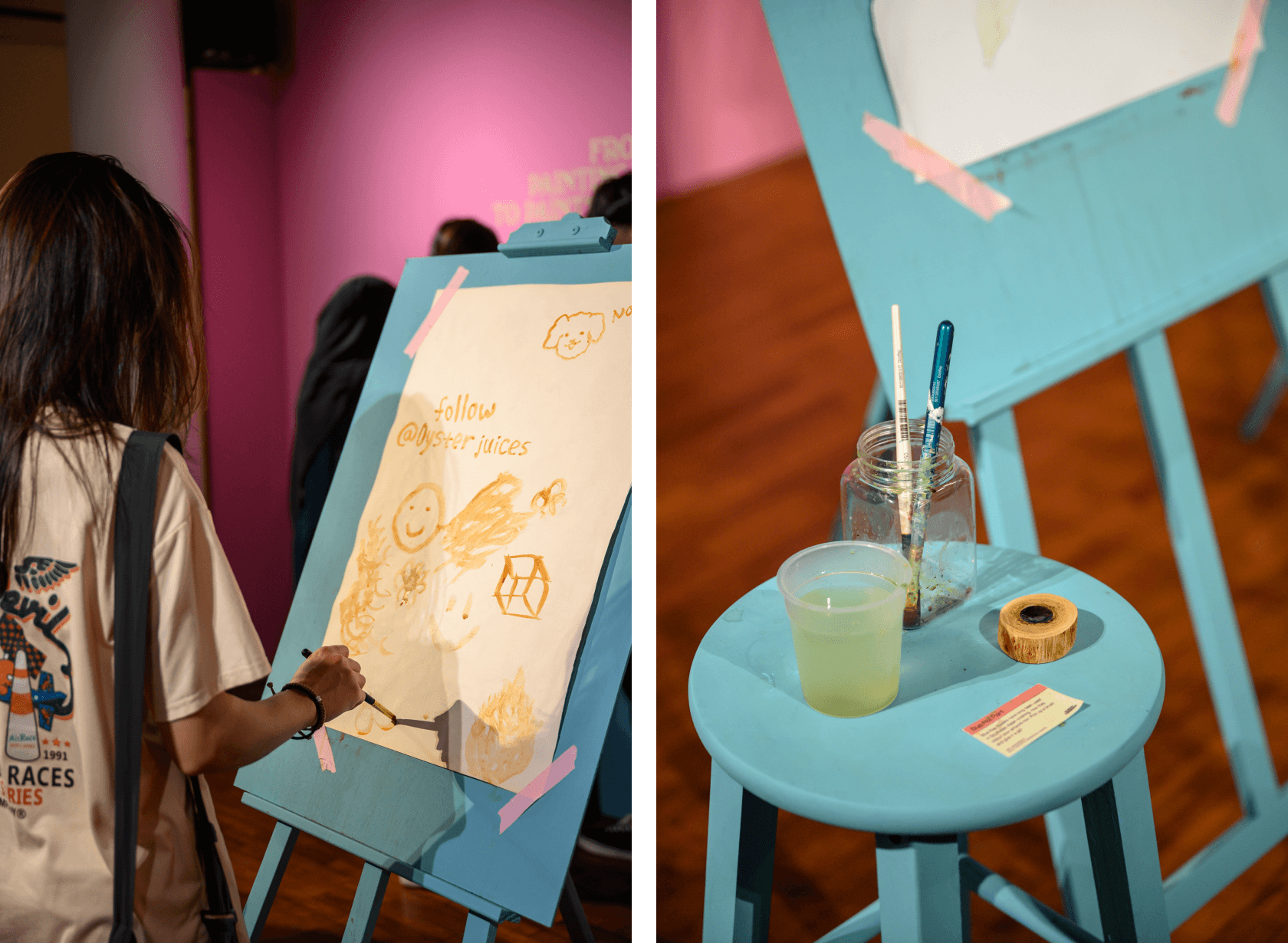
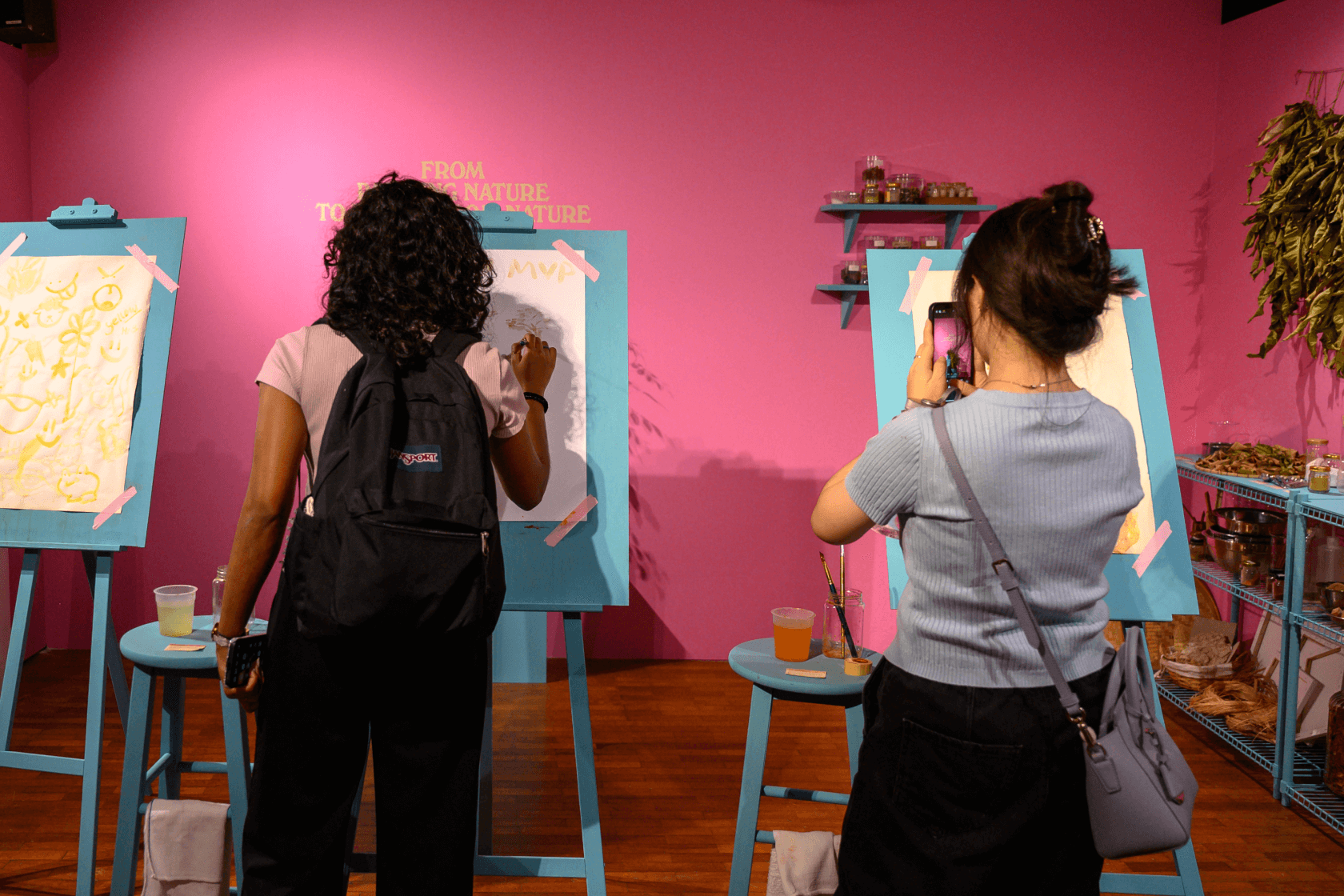
The Canteen Serves Up Meals Of Tomorrow
Students get a taste of unusual meals, snacks and drinks that are not only nutritious but healthful for the Earth too. These range from the interesting (slurpy algae) to the brow-raising (roasted larvae, cricket protein bar). We also showcase alternatives to wasteful single-use tableware and food packaging, such as edible cutlery and coffee husk cups.
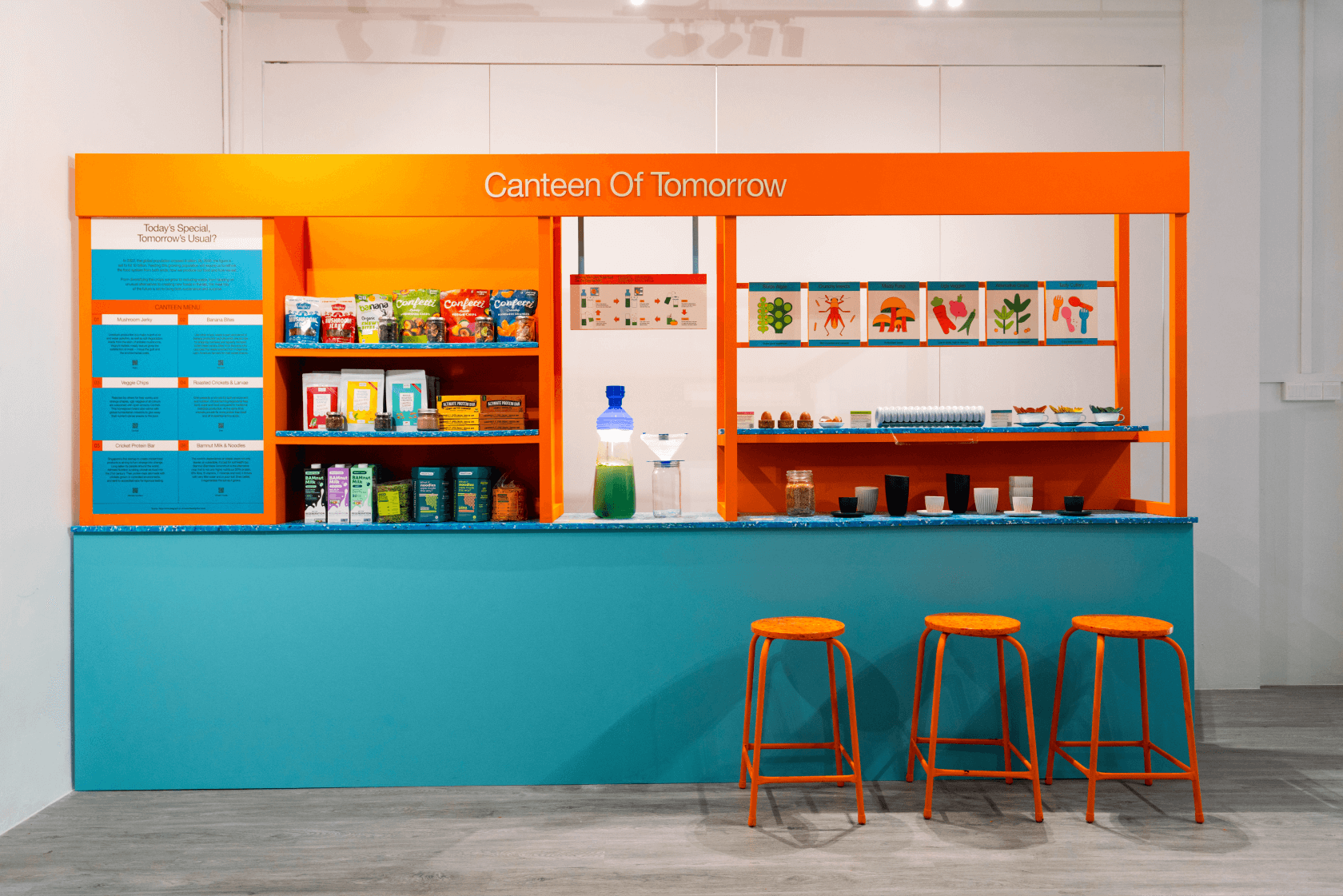
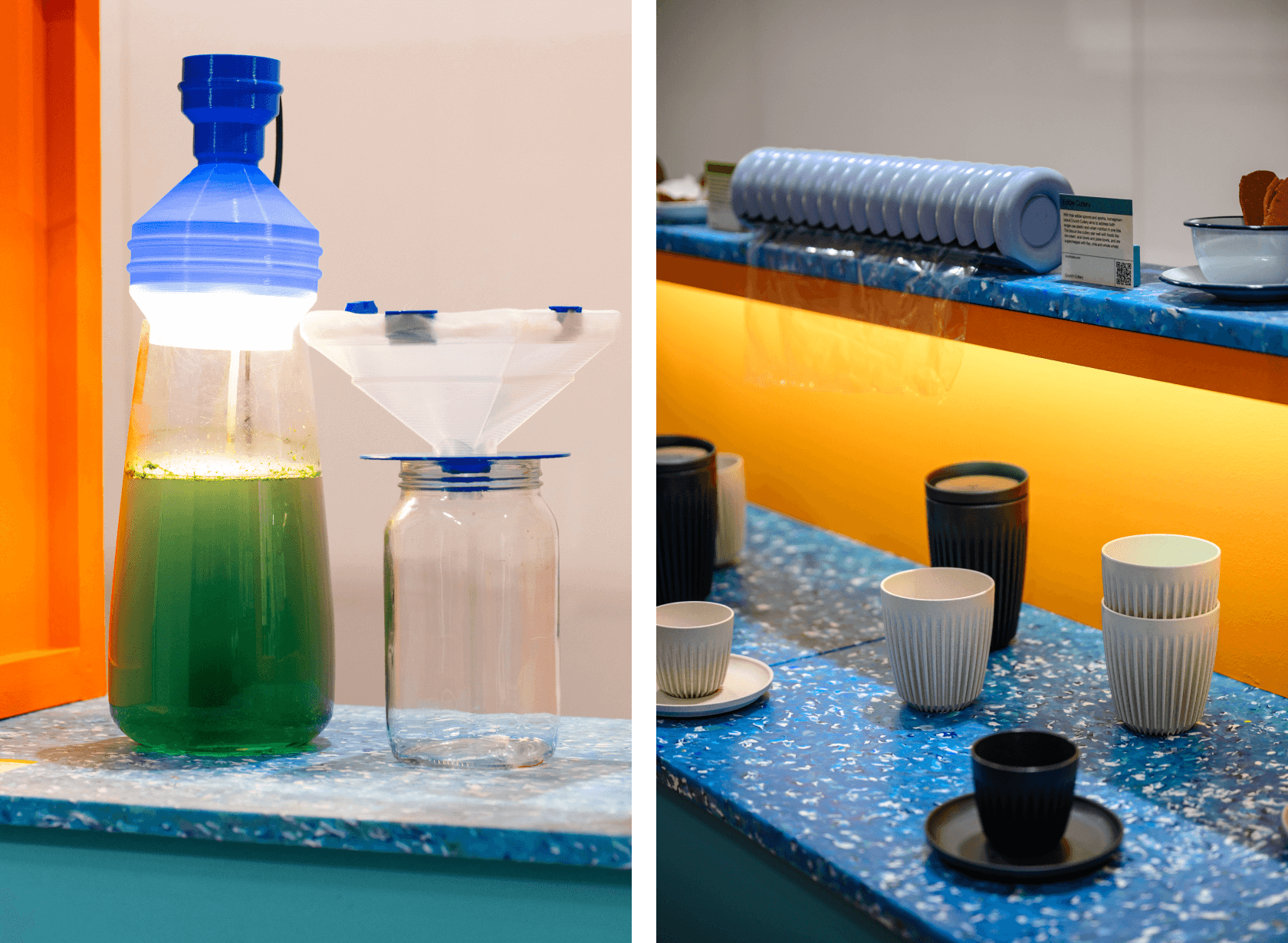
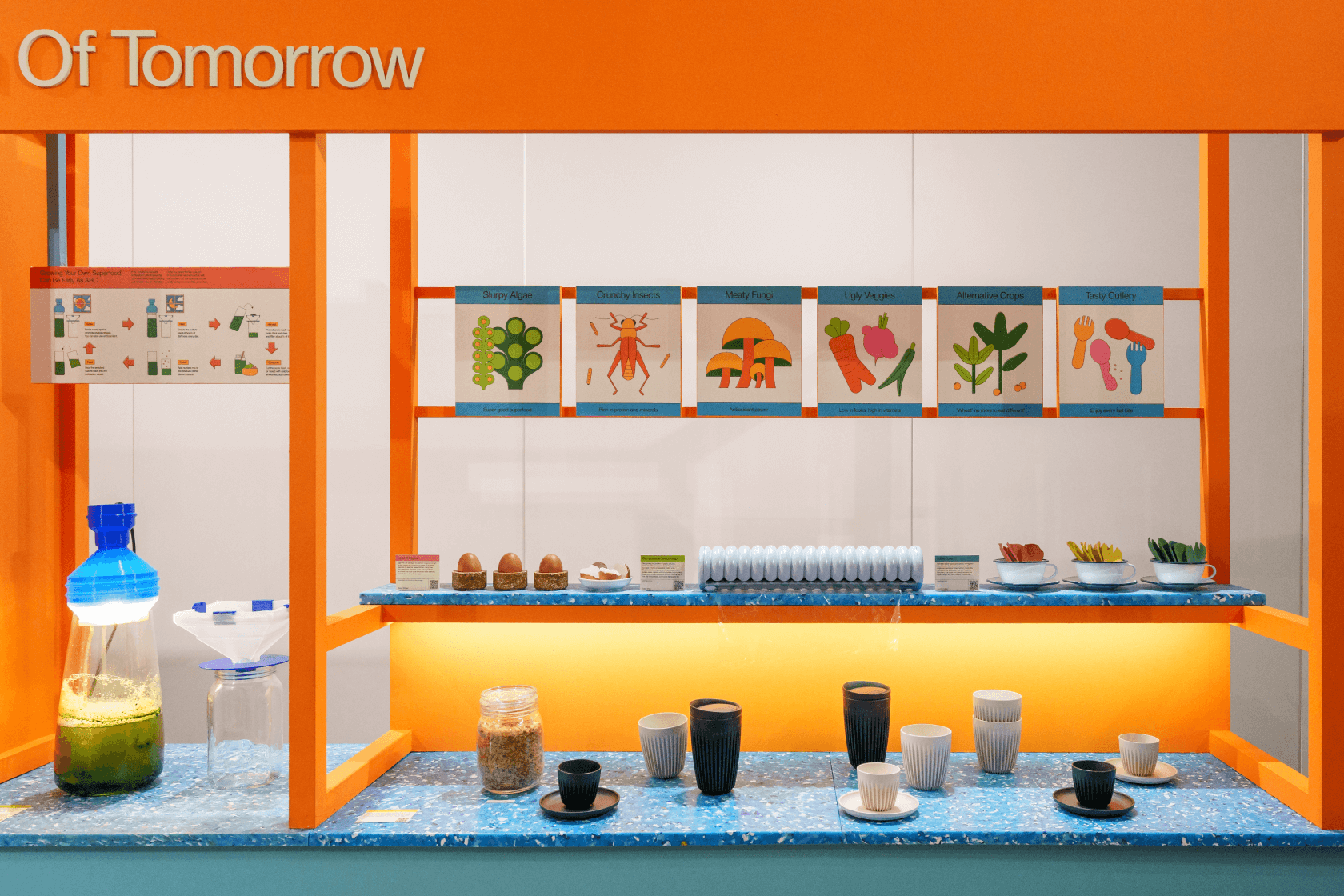
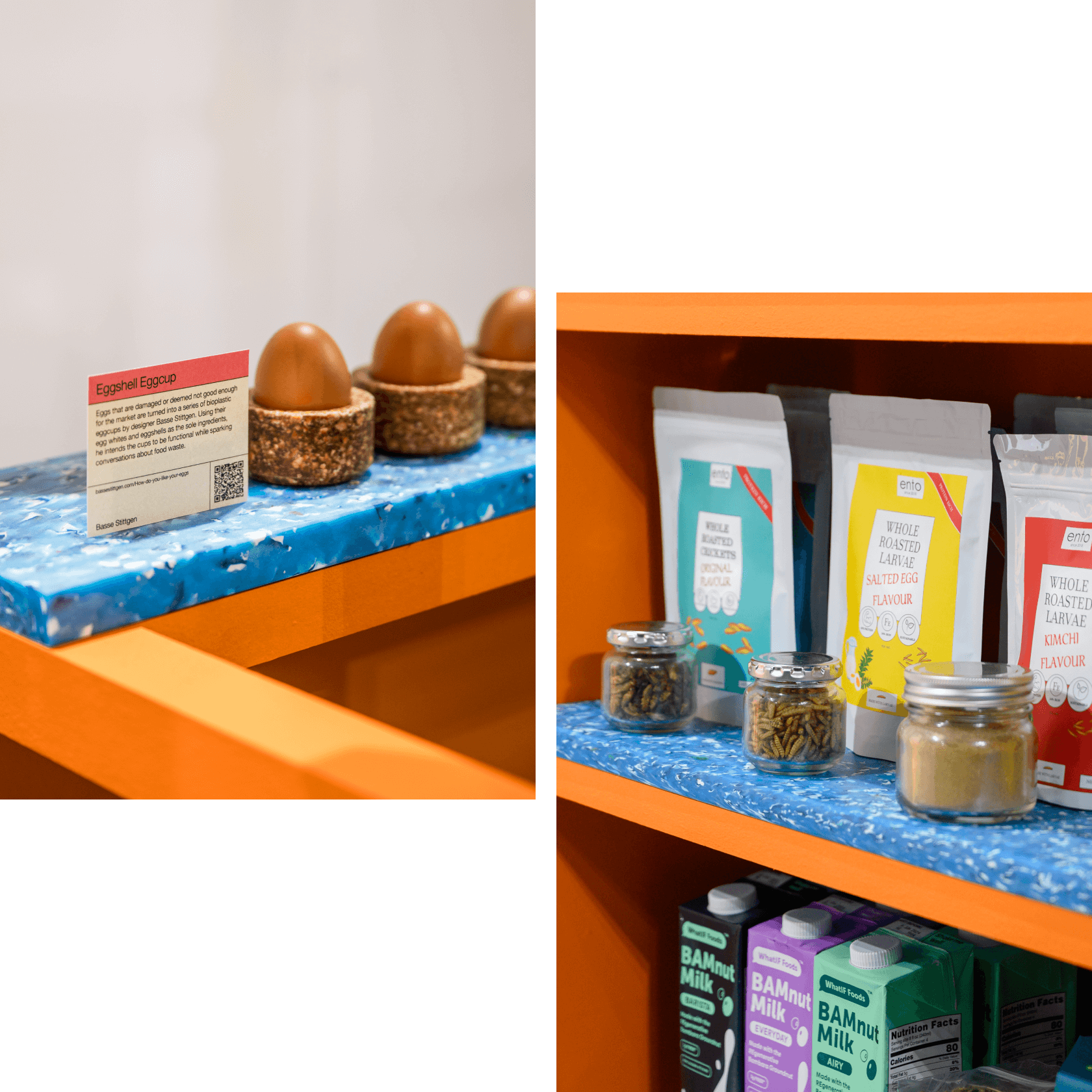
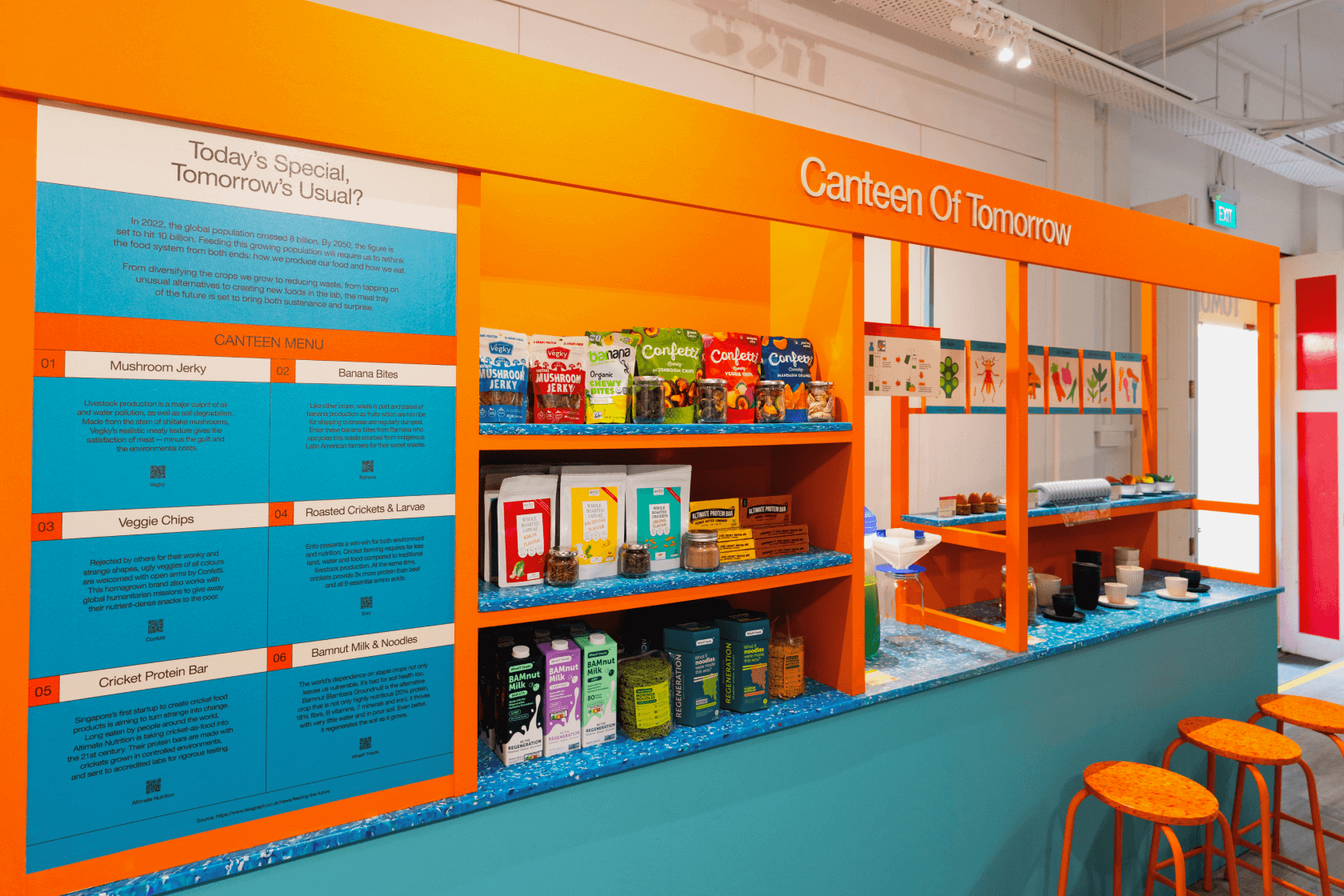
The Learning Continues Outside The Classroom
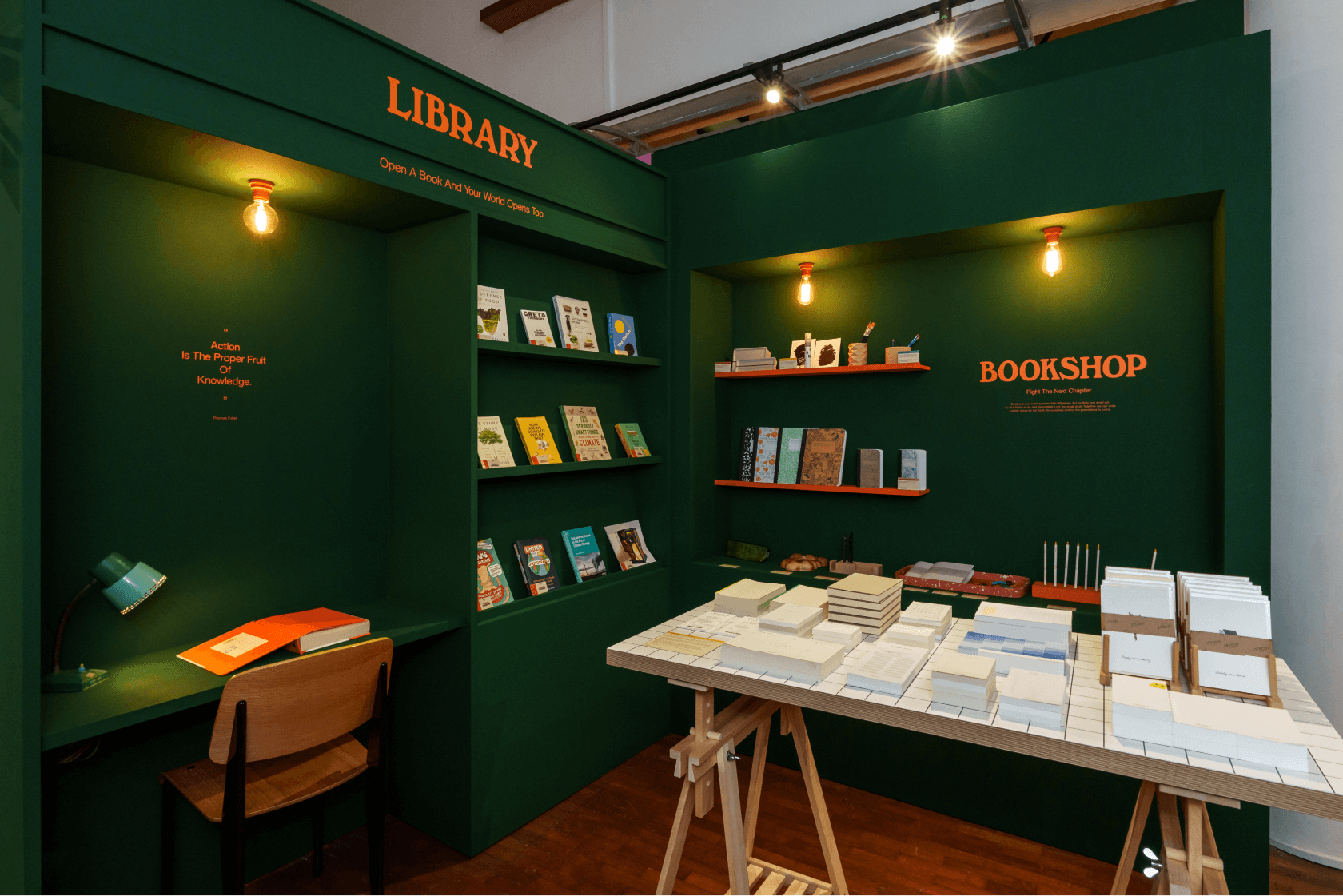
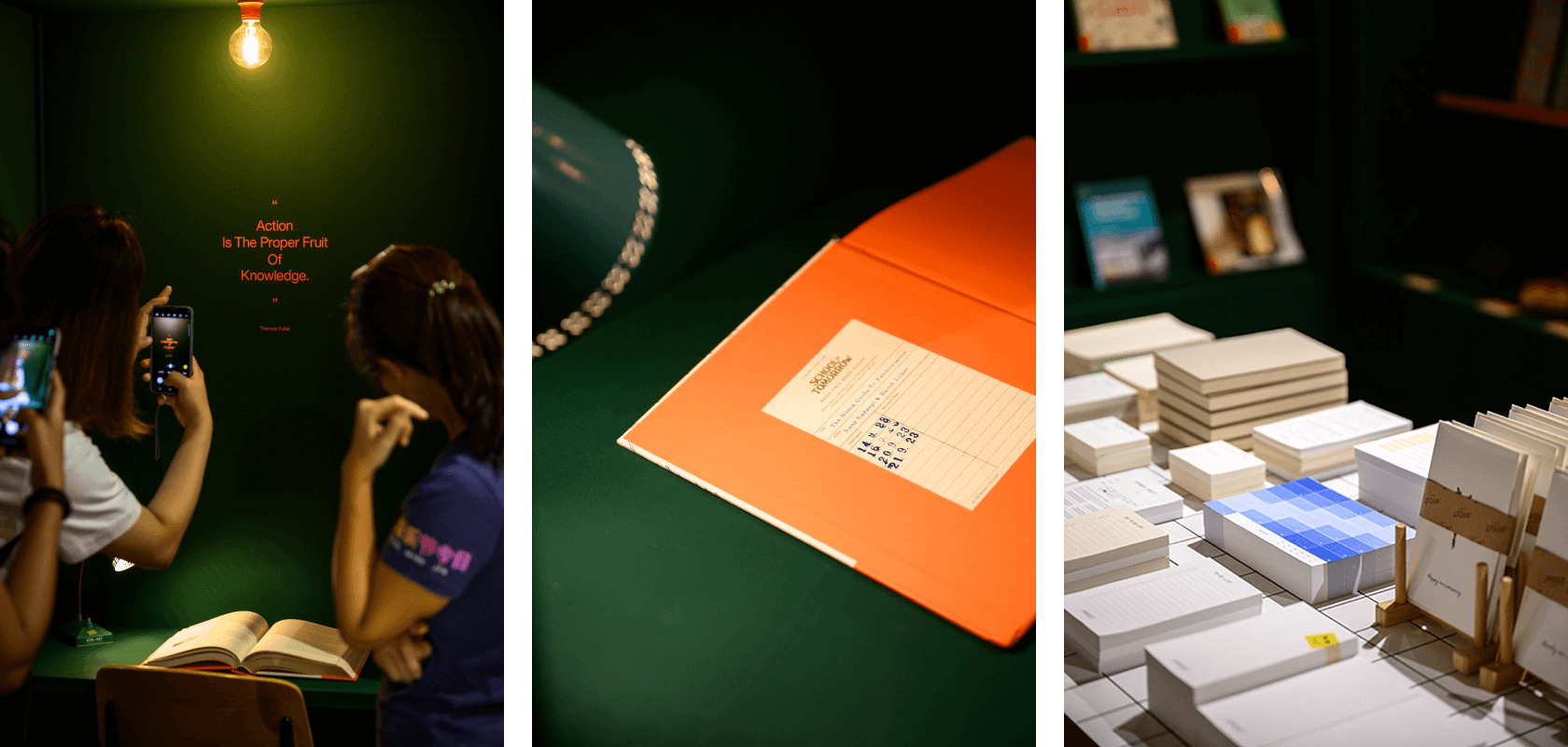

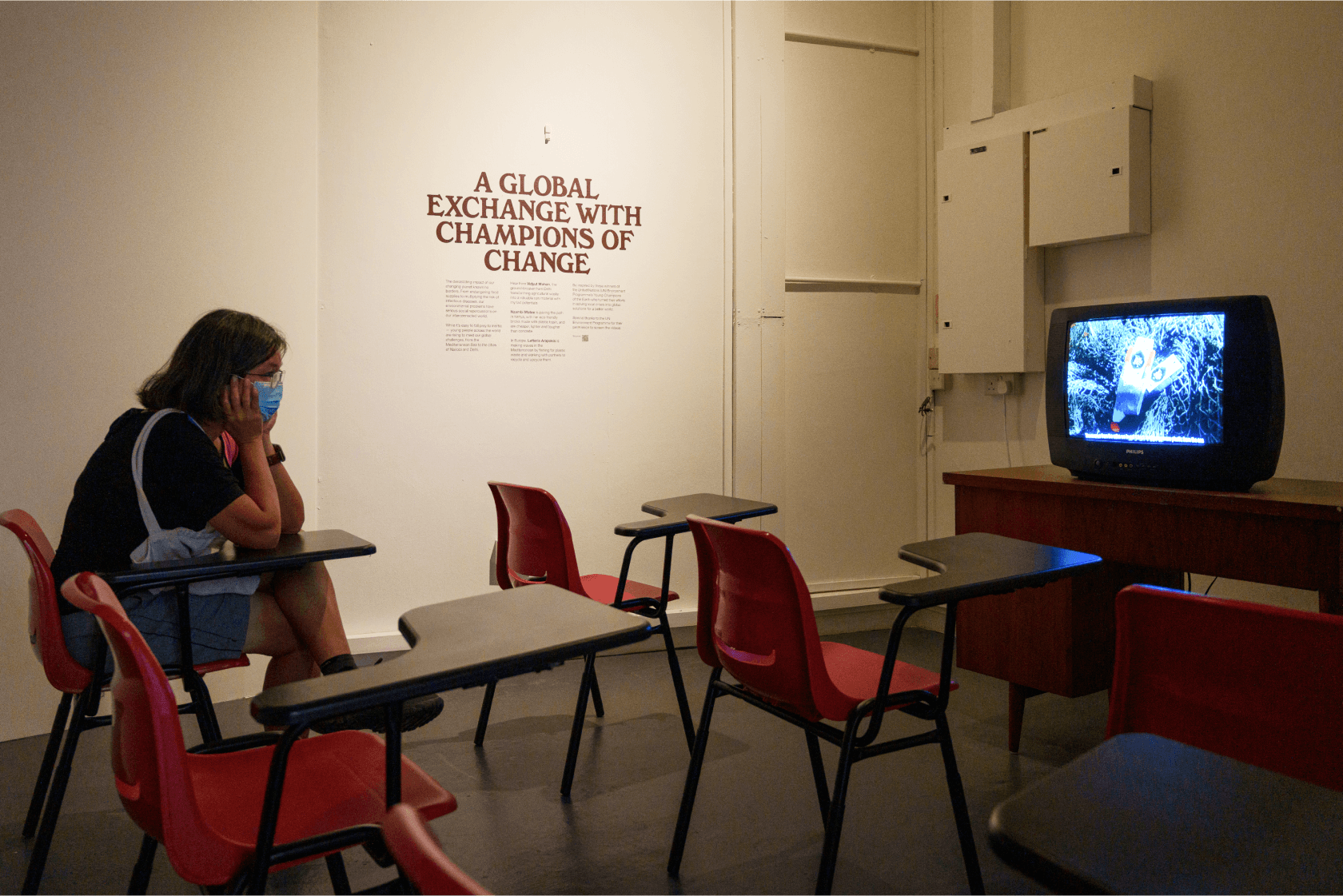
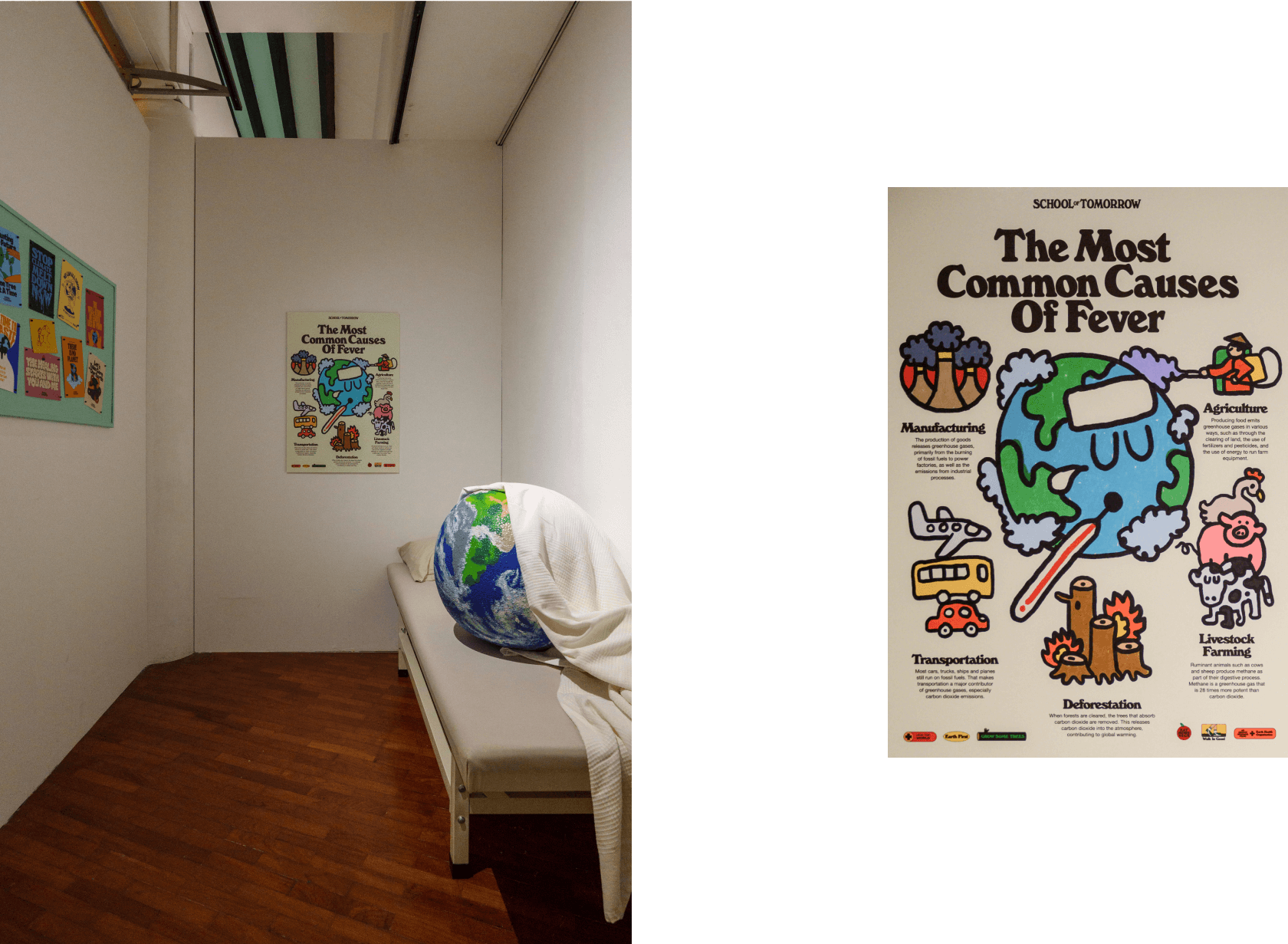

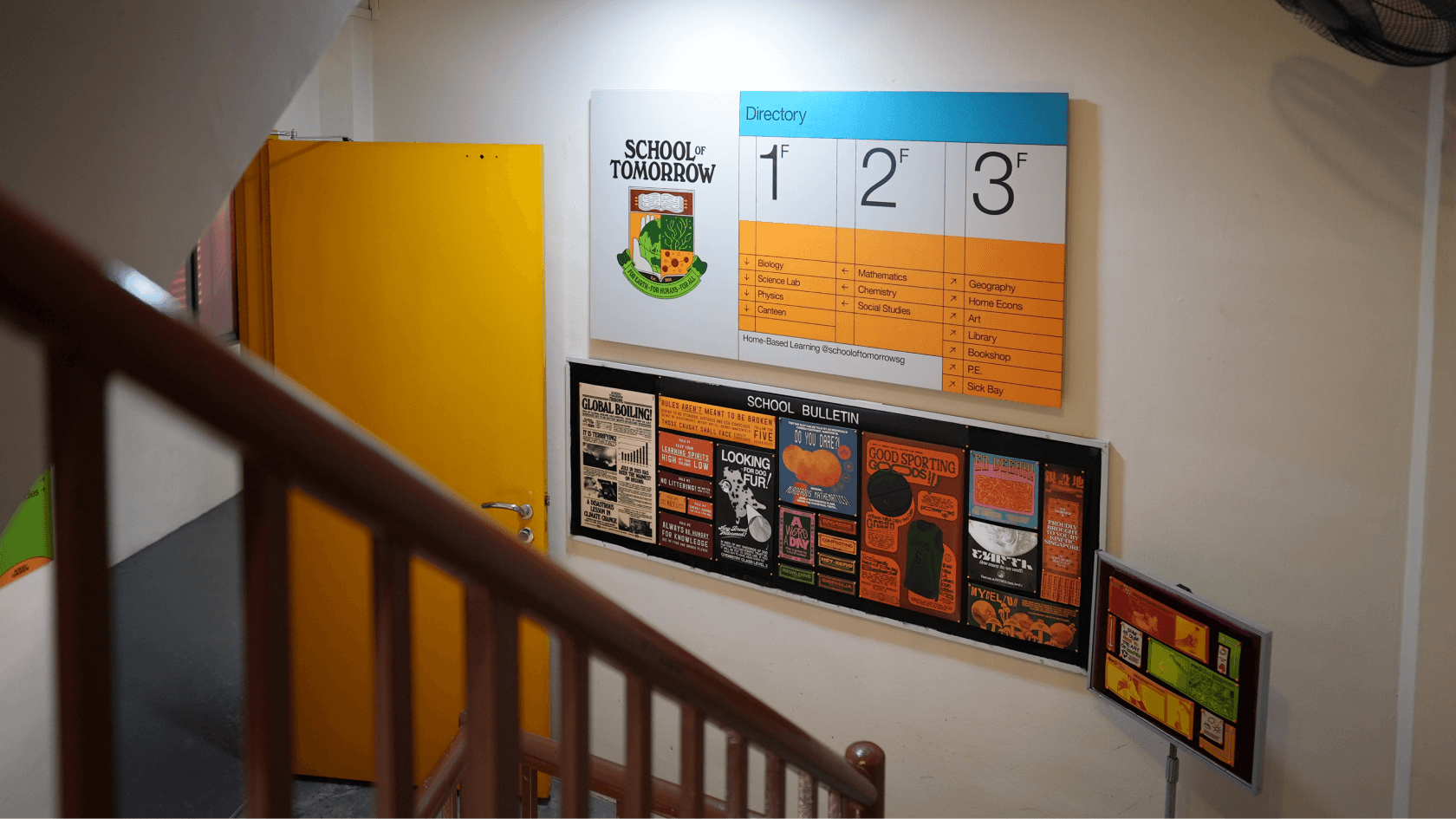
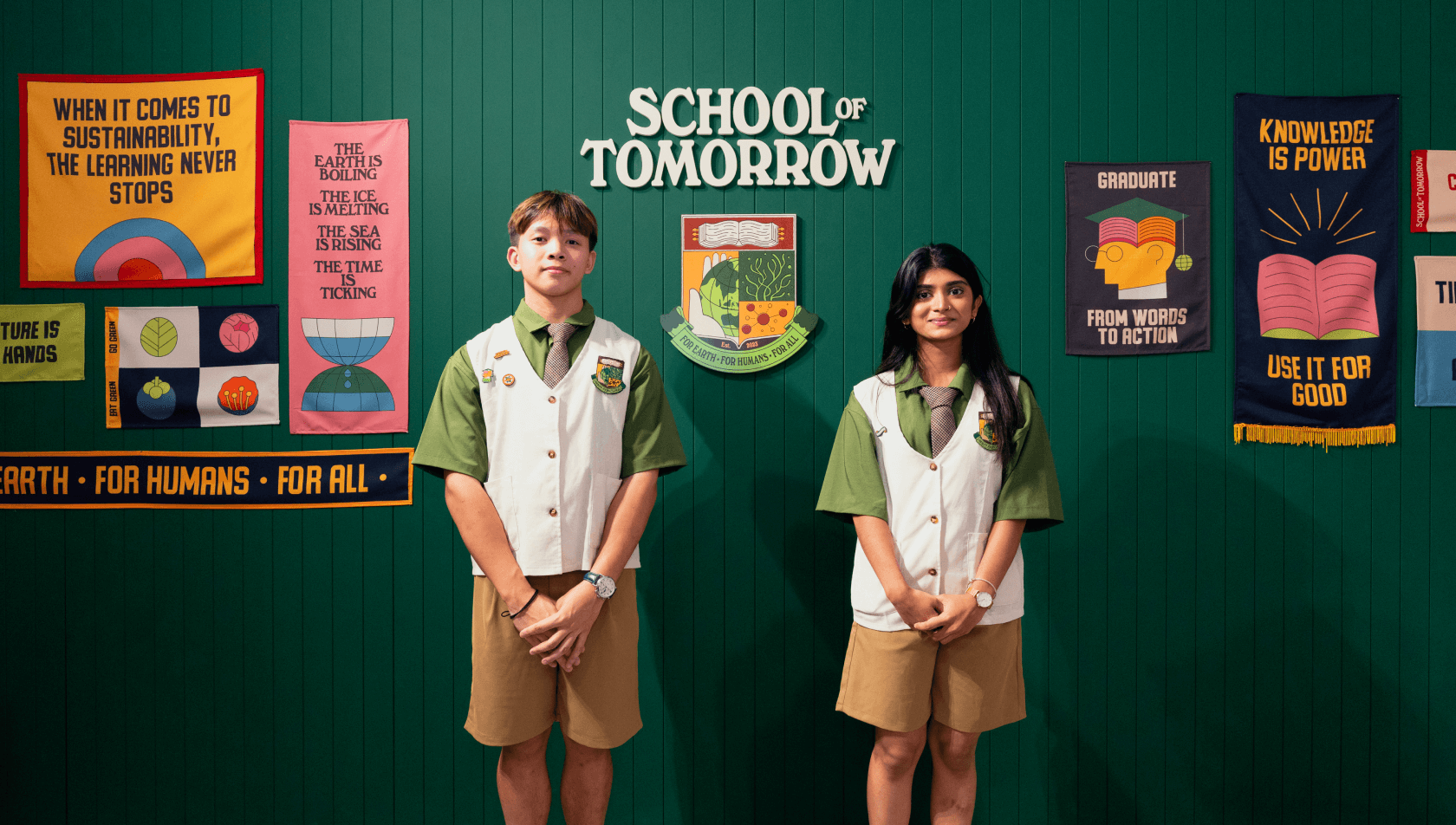
“Pack a powerful visual message
into one simple scene”Channel NewsAsia
